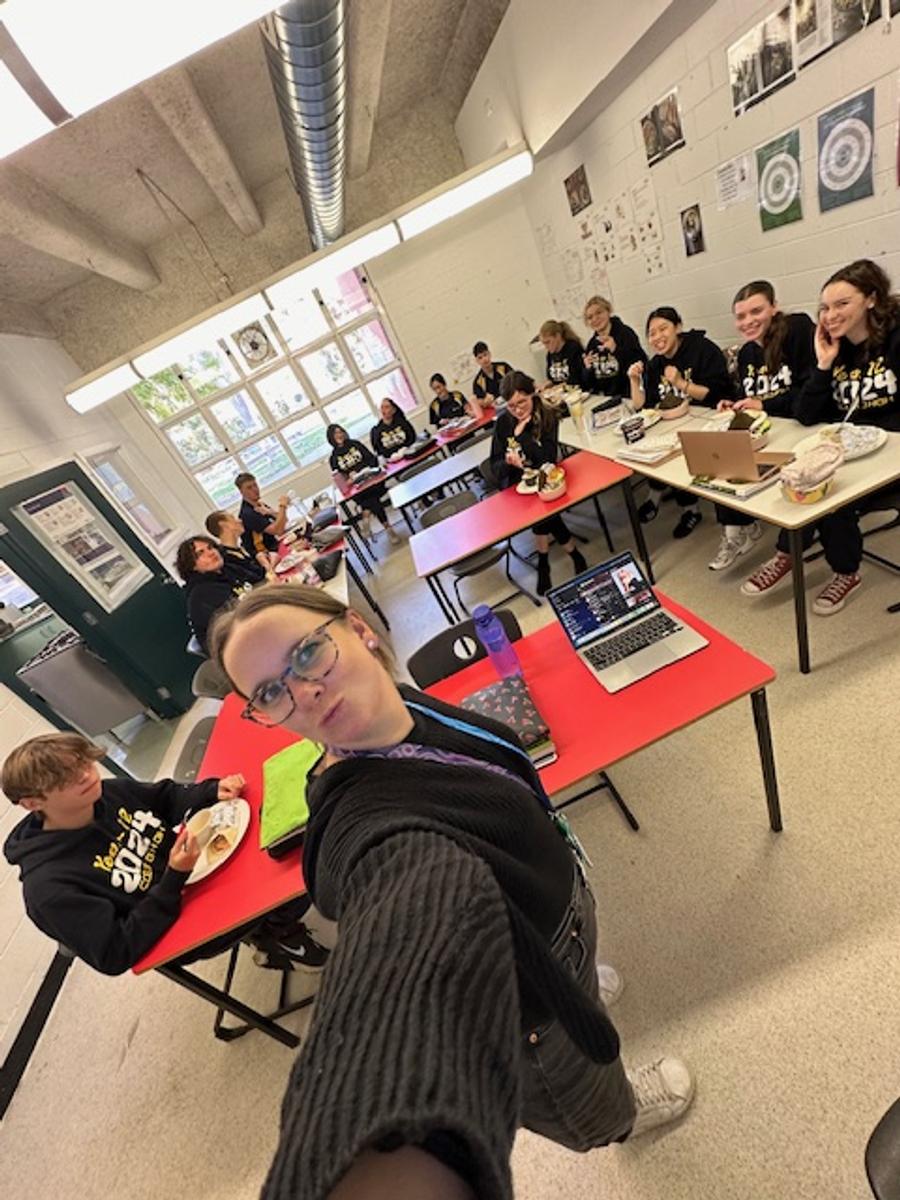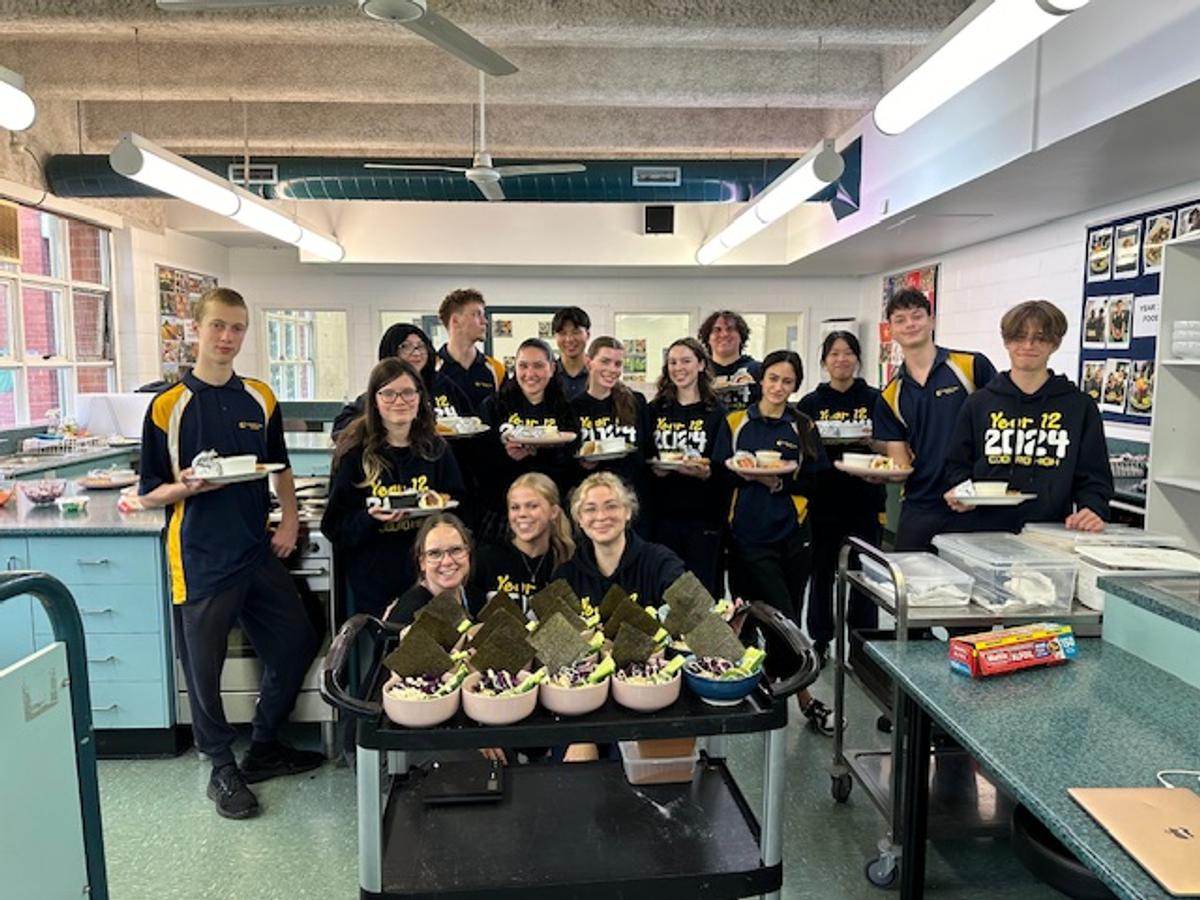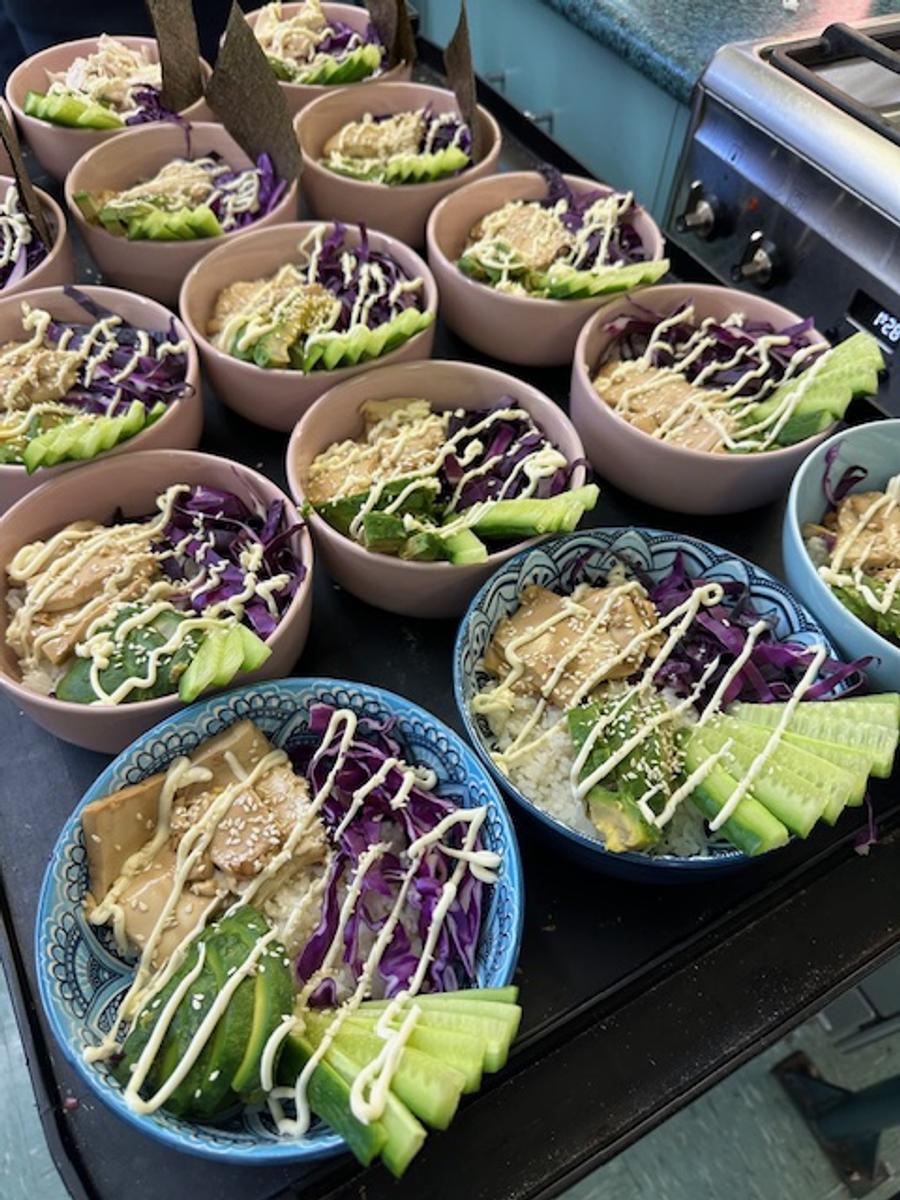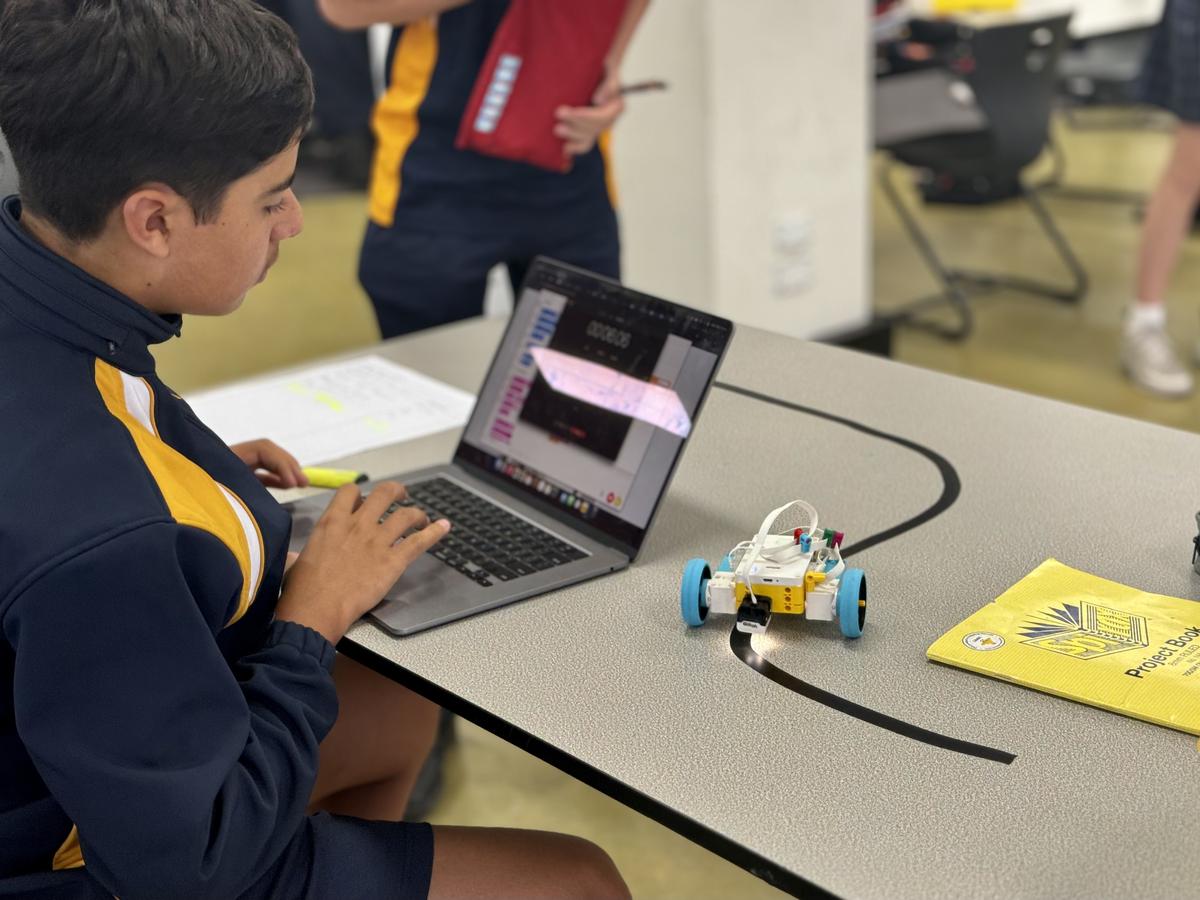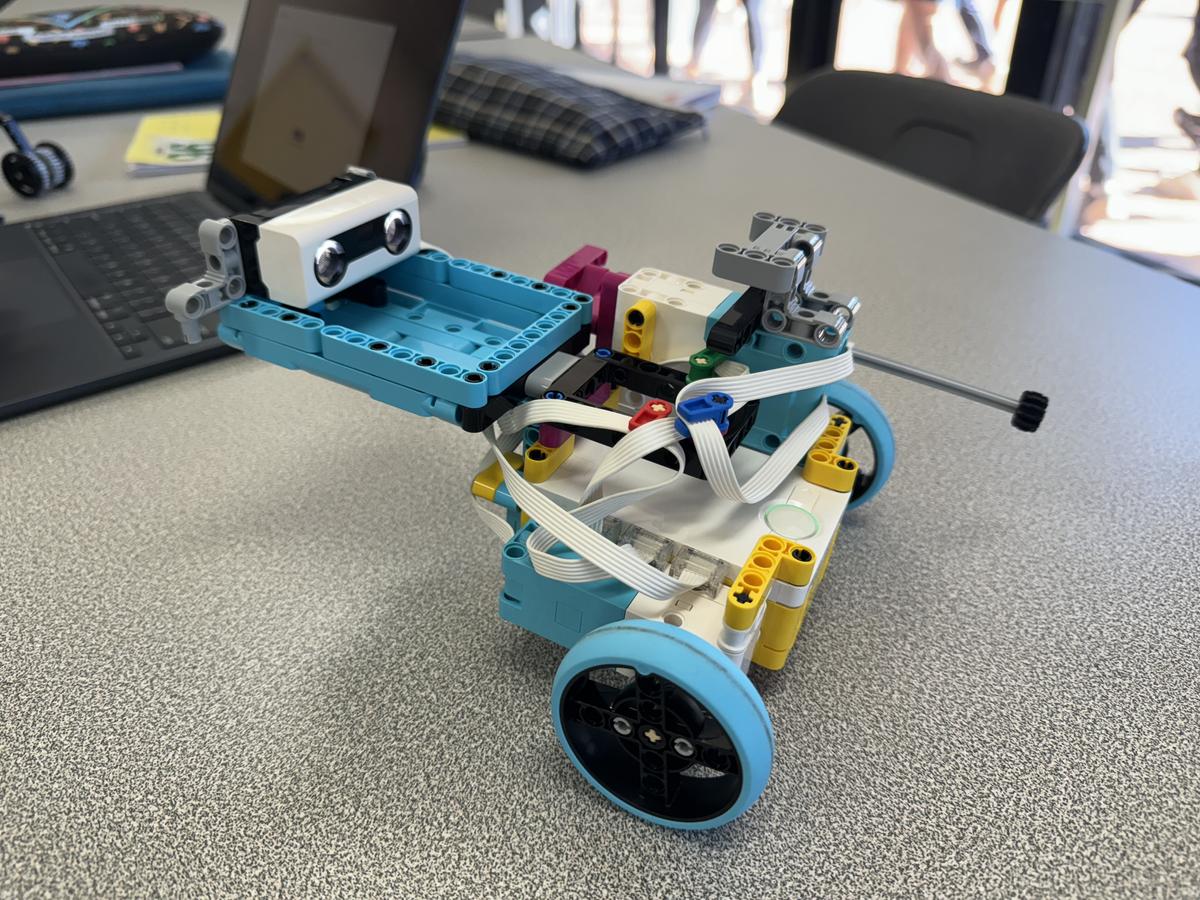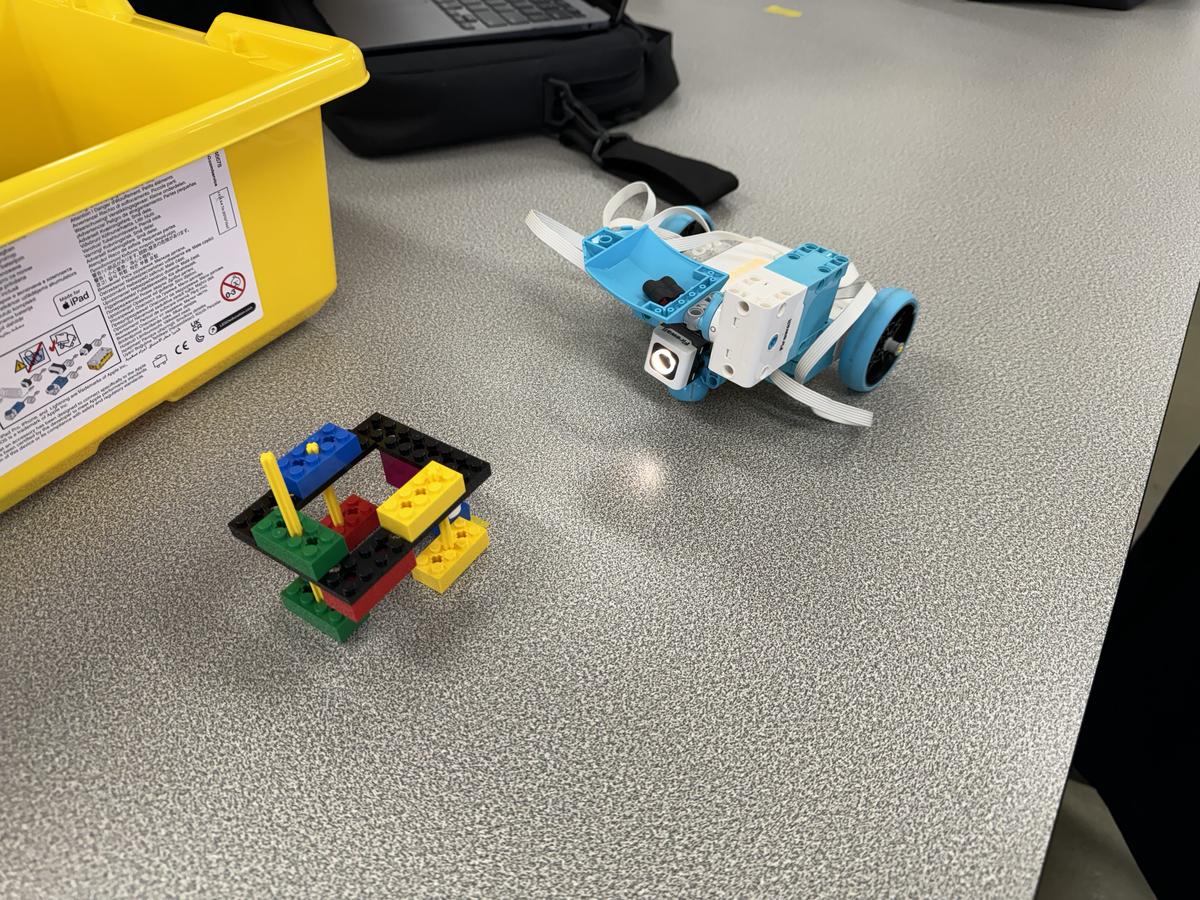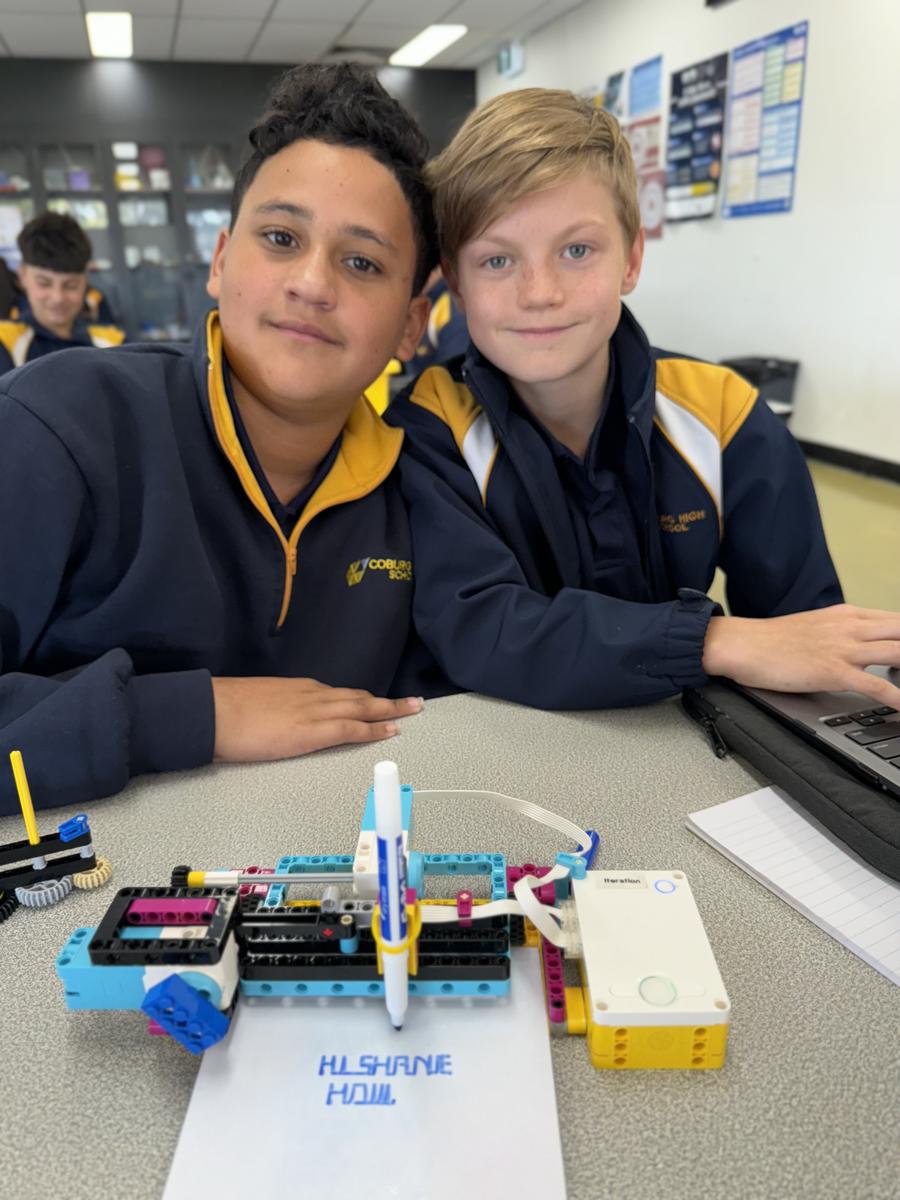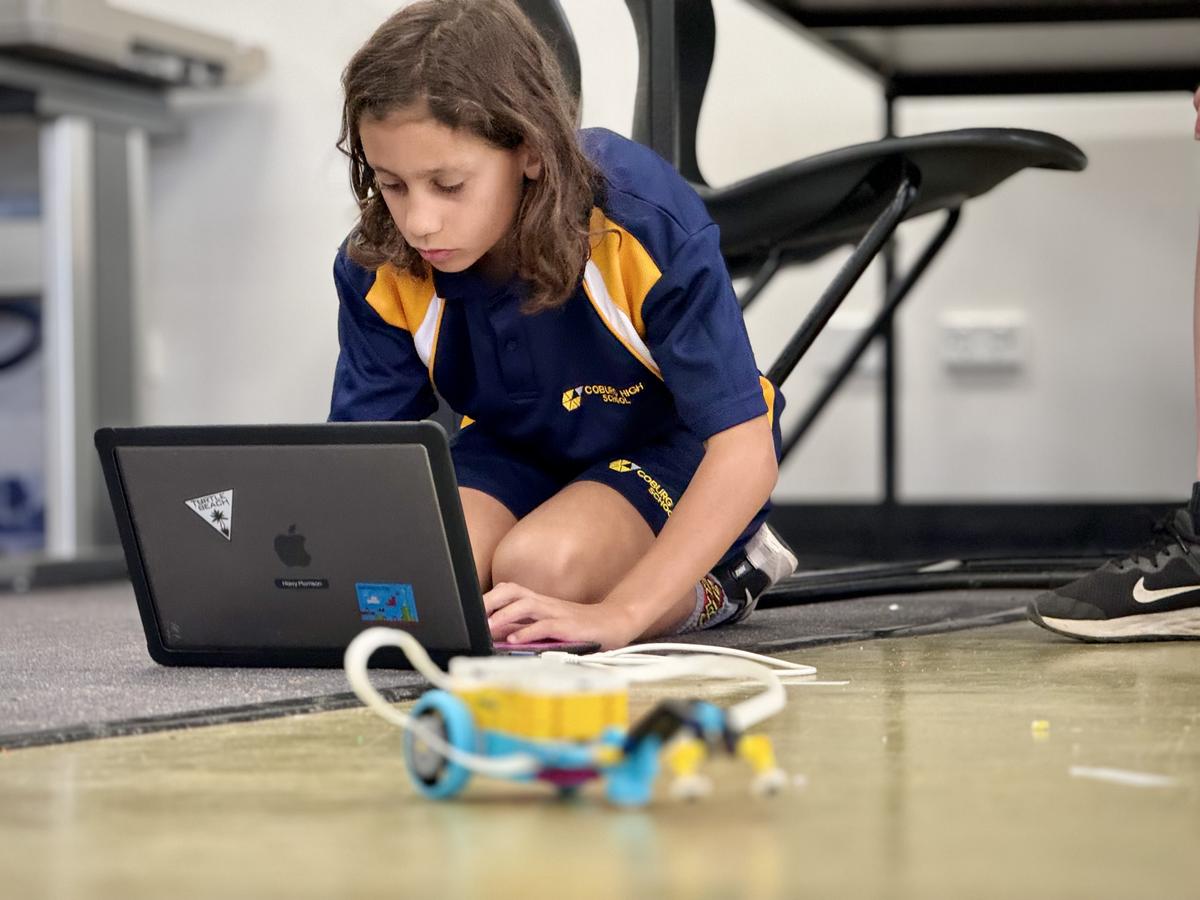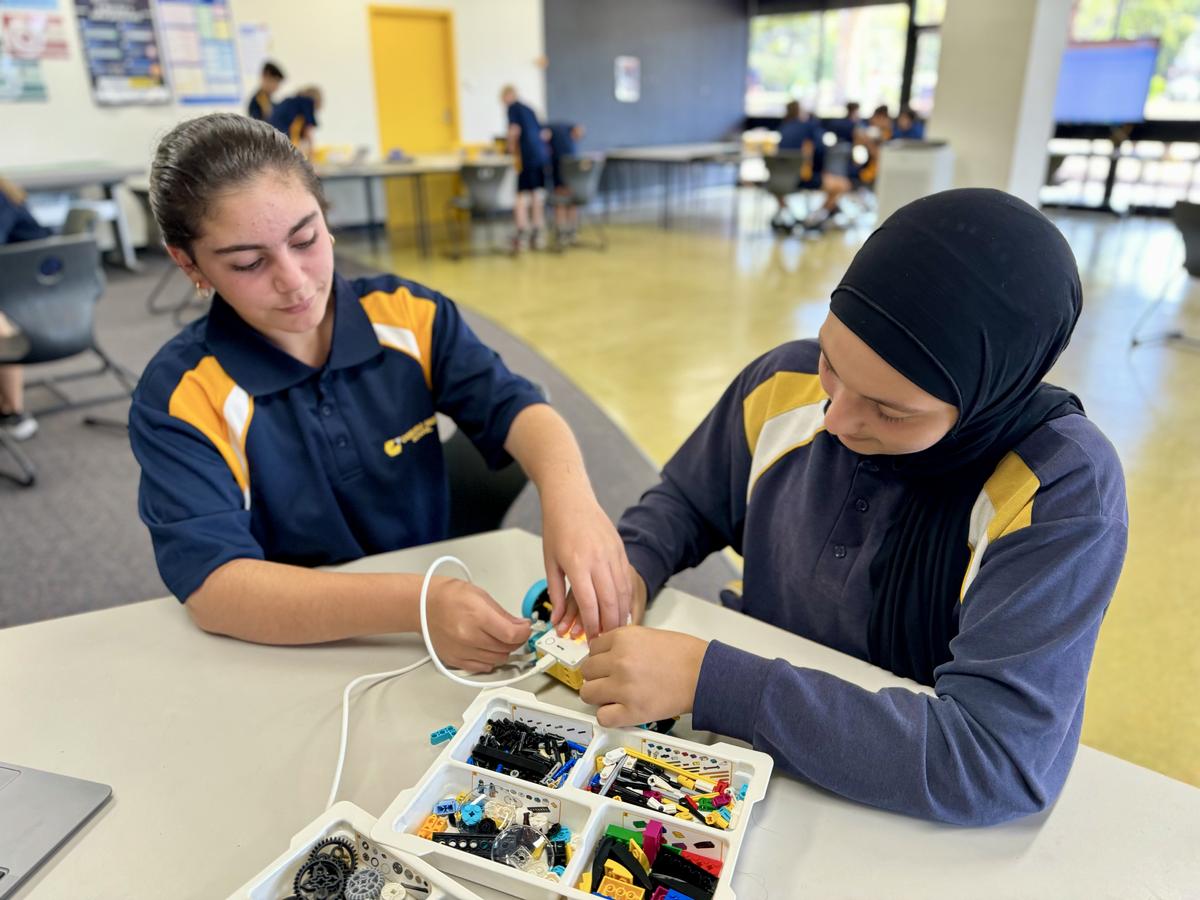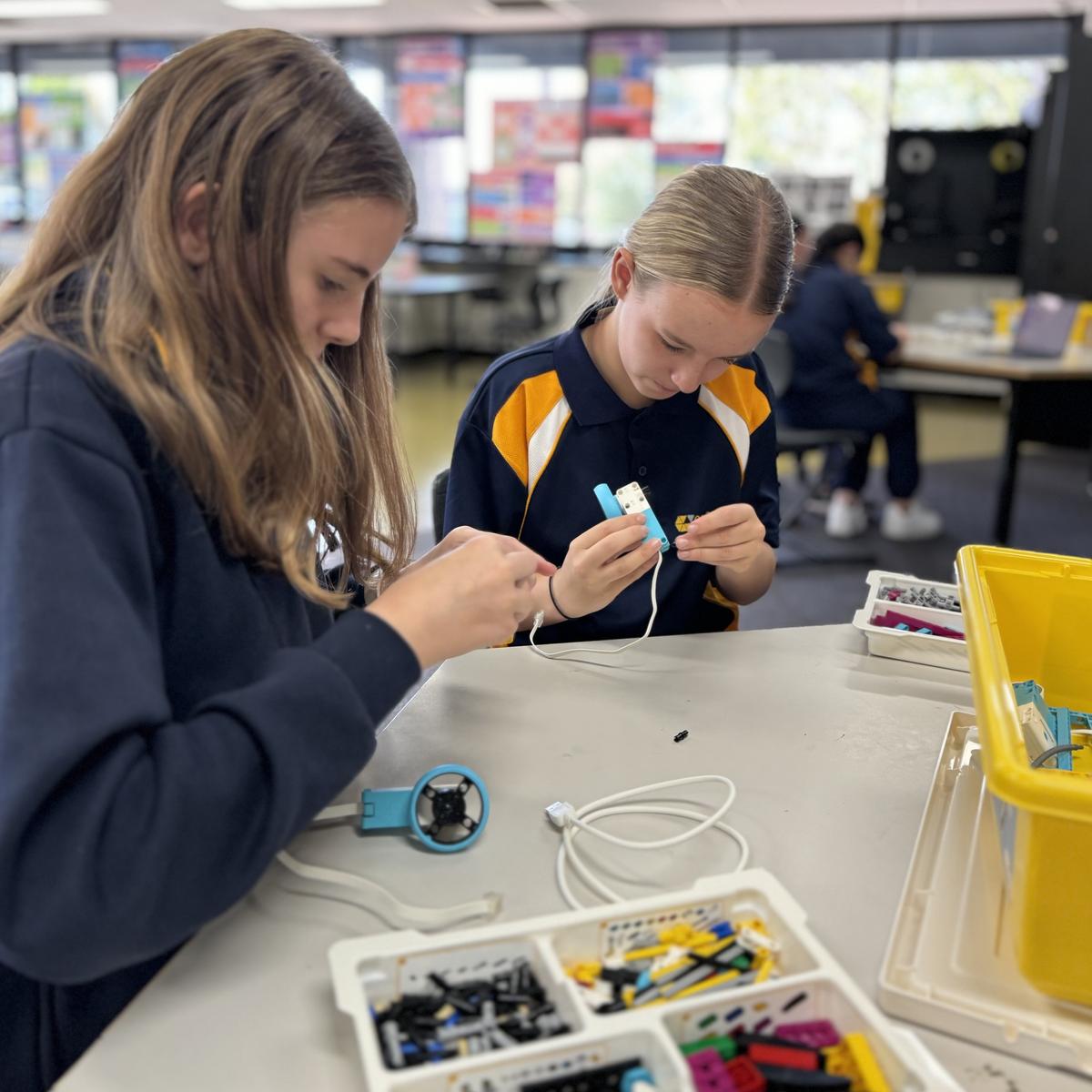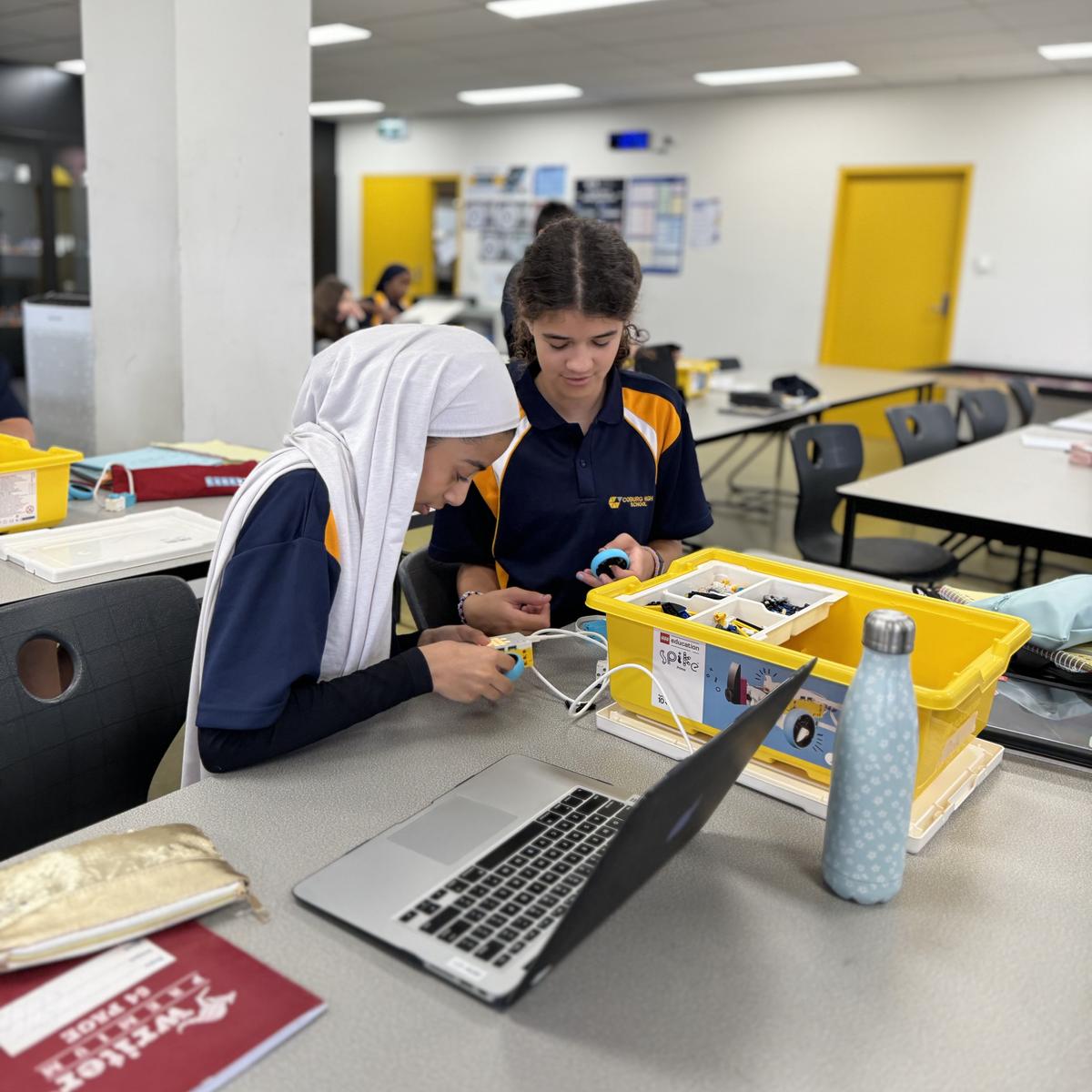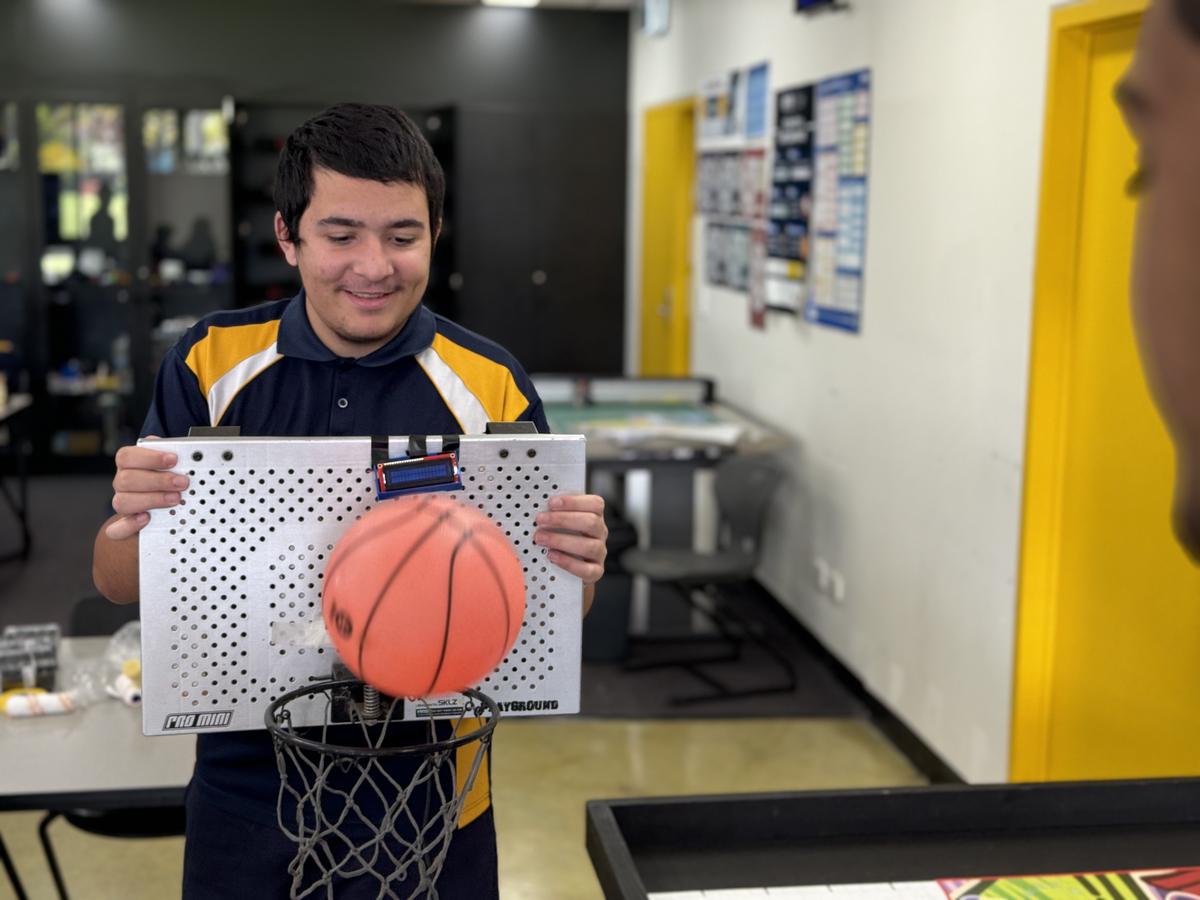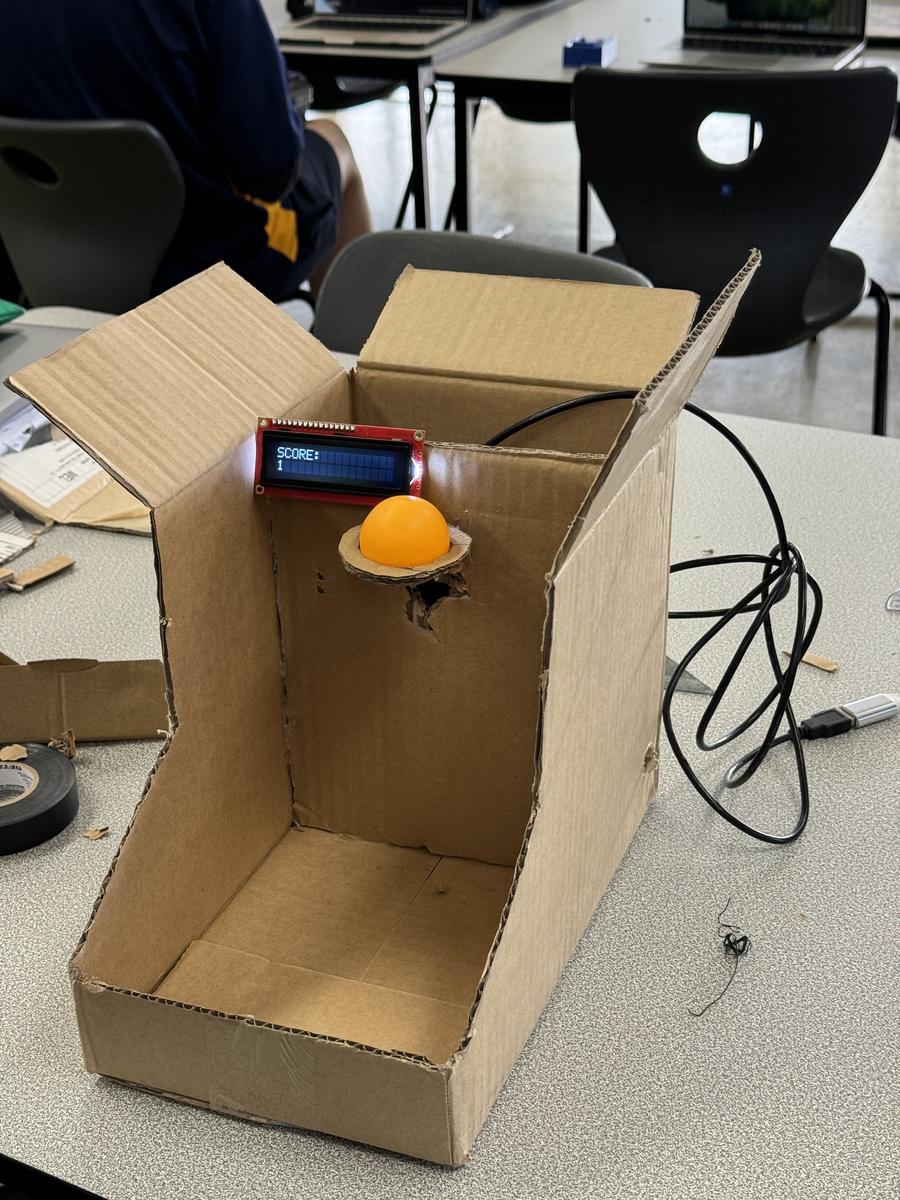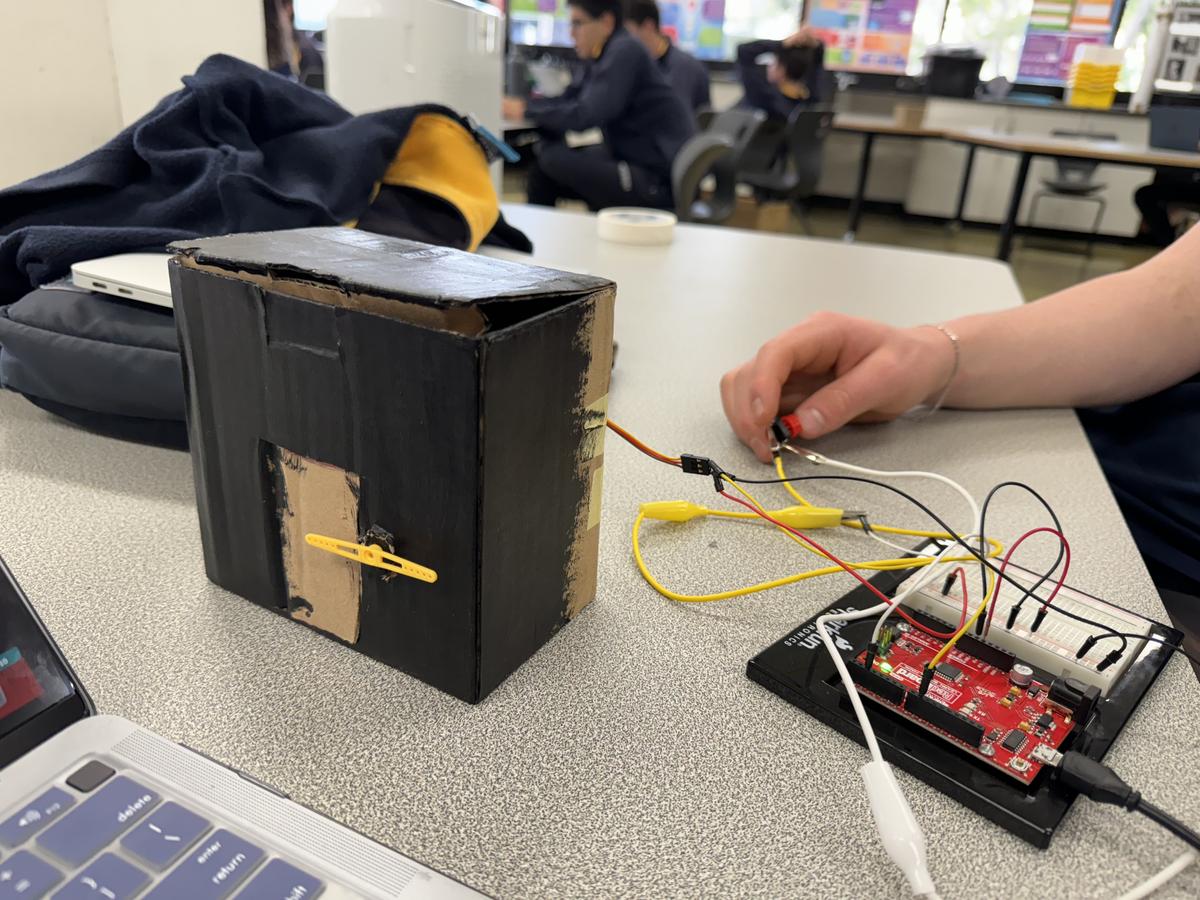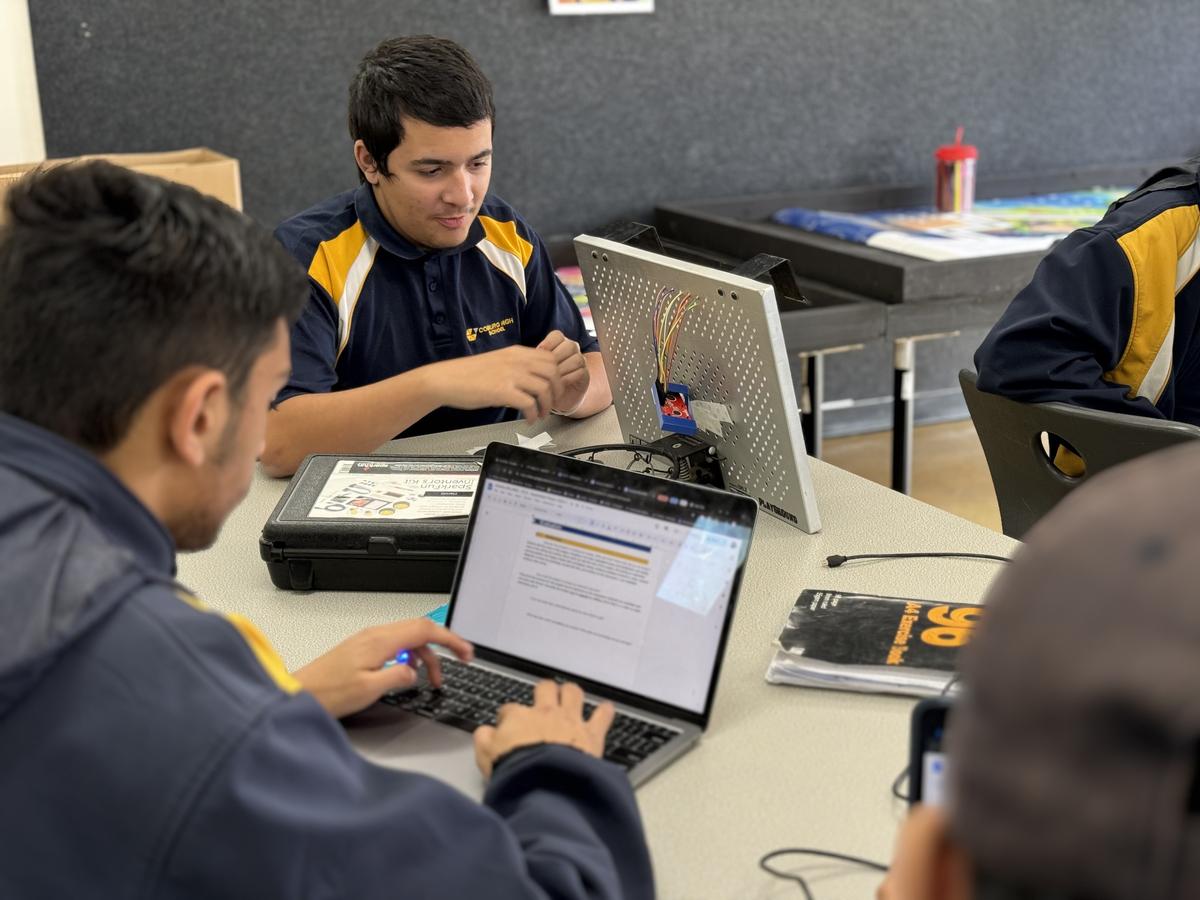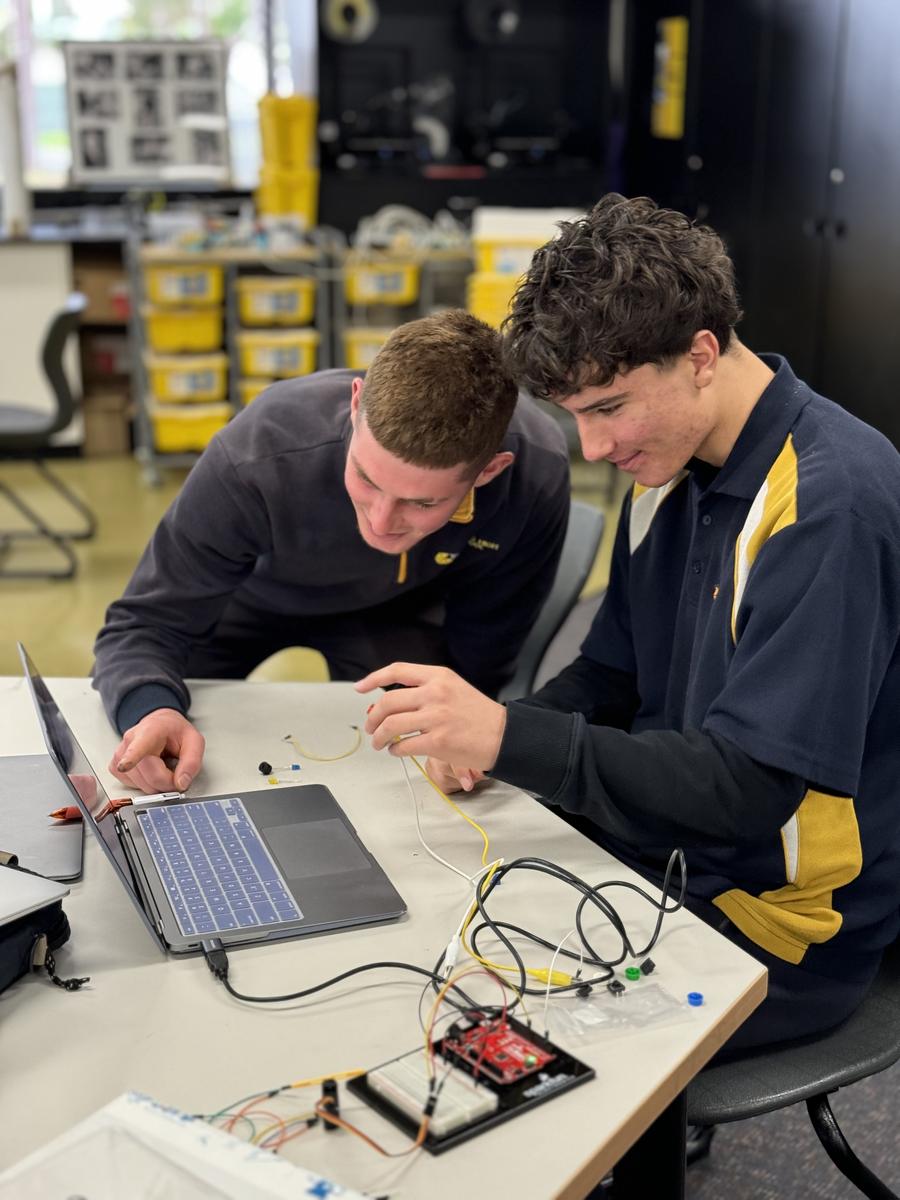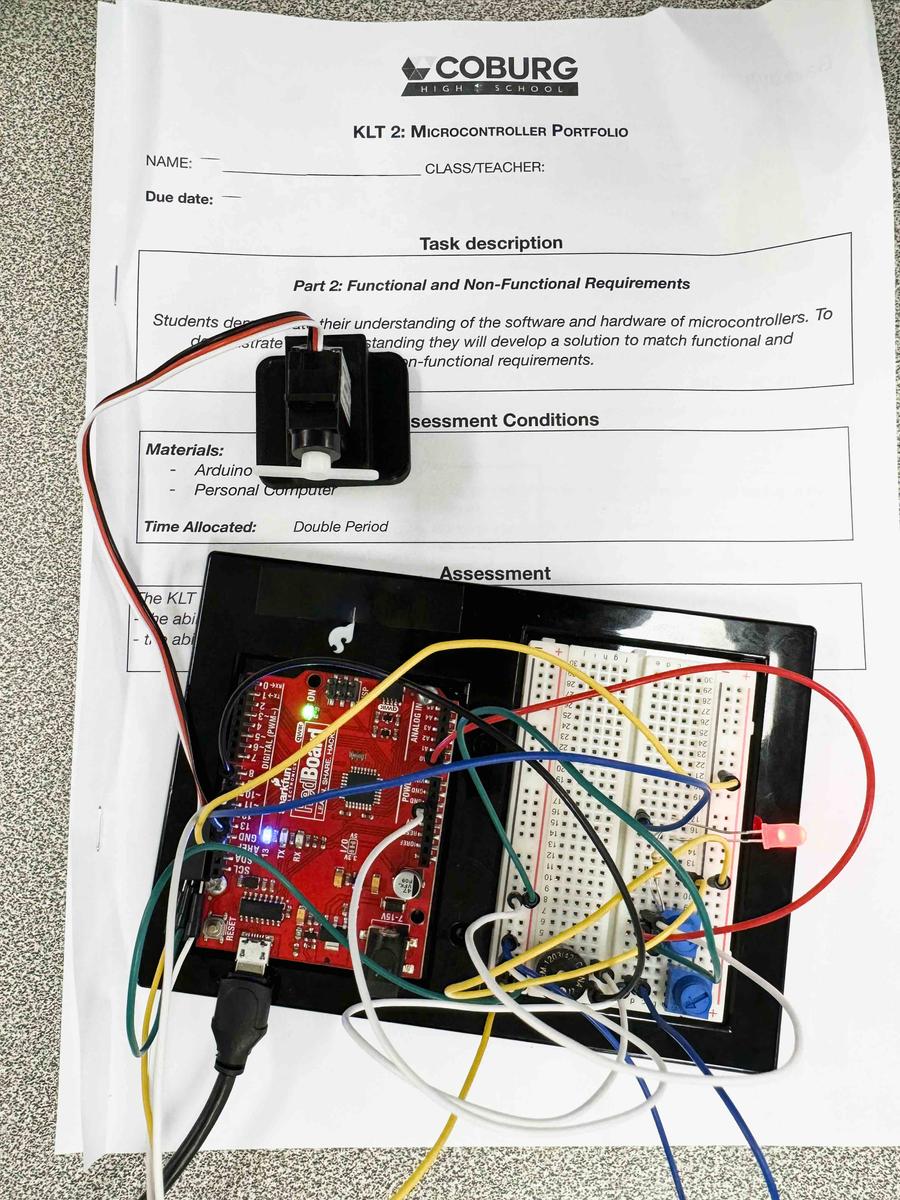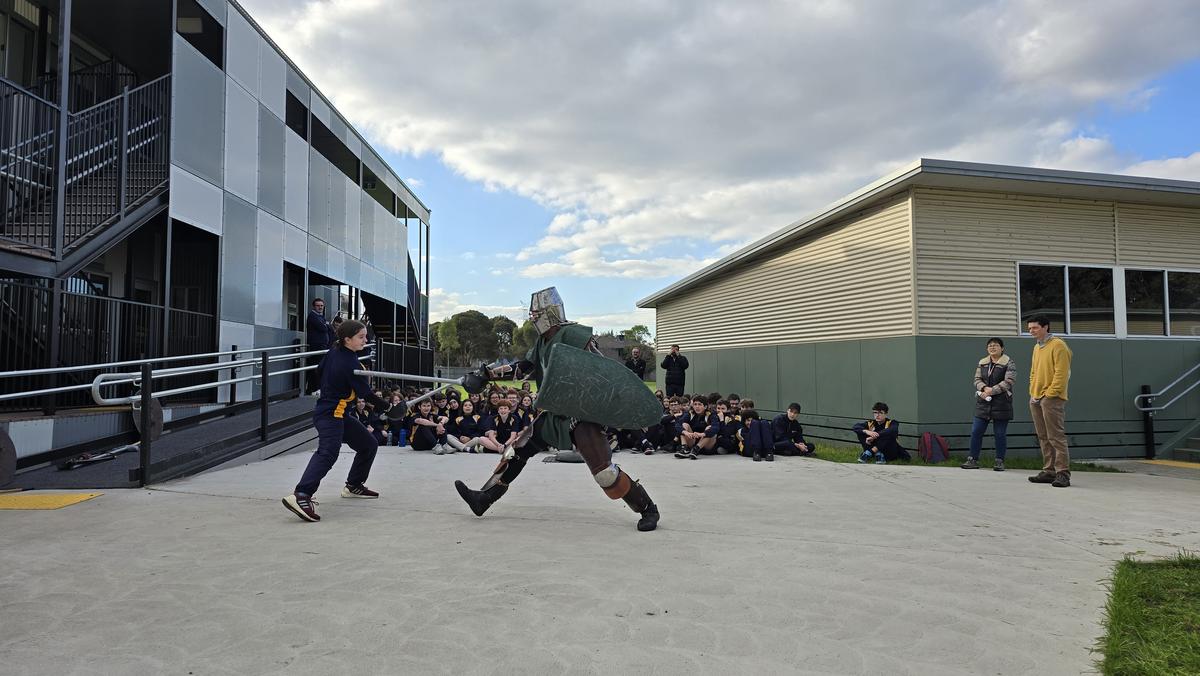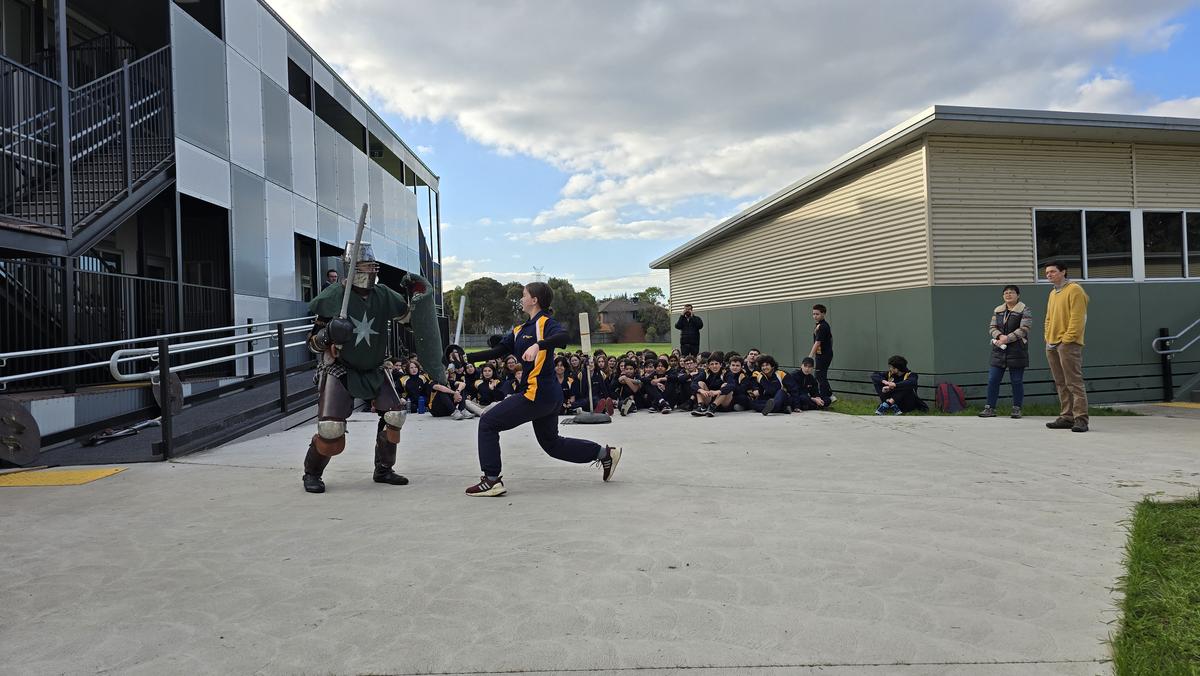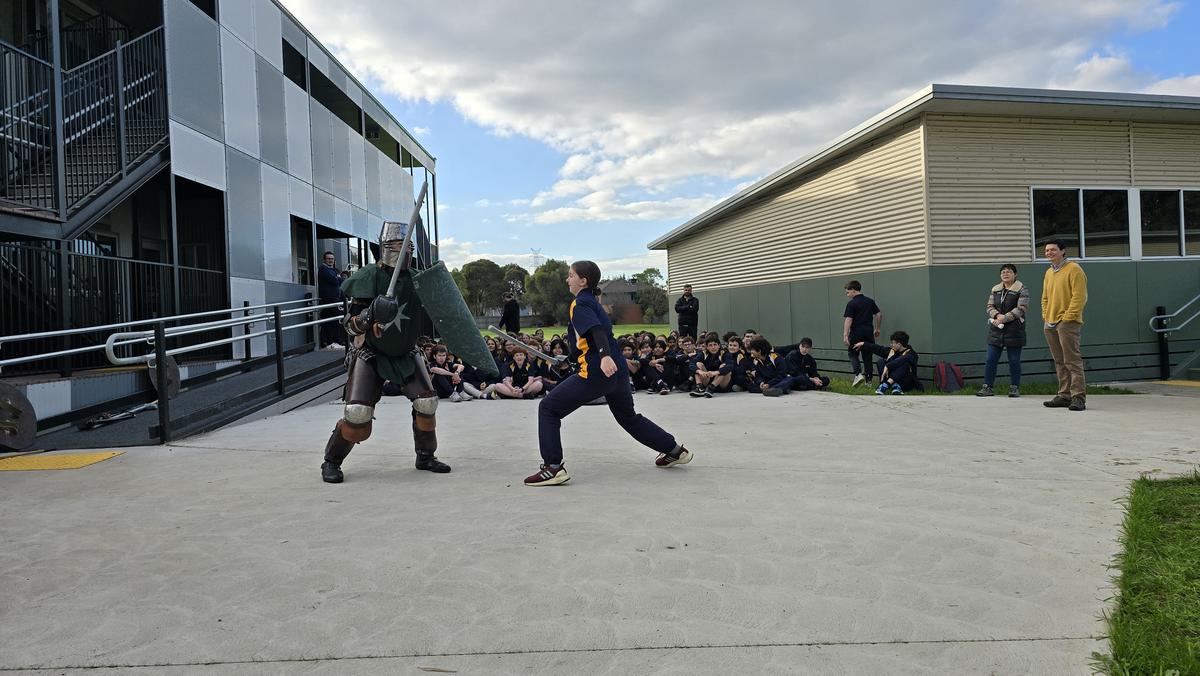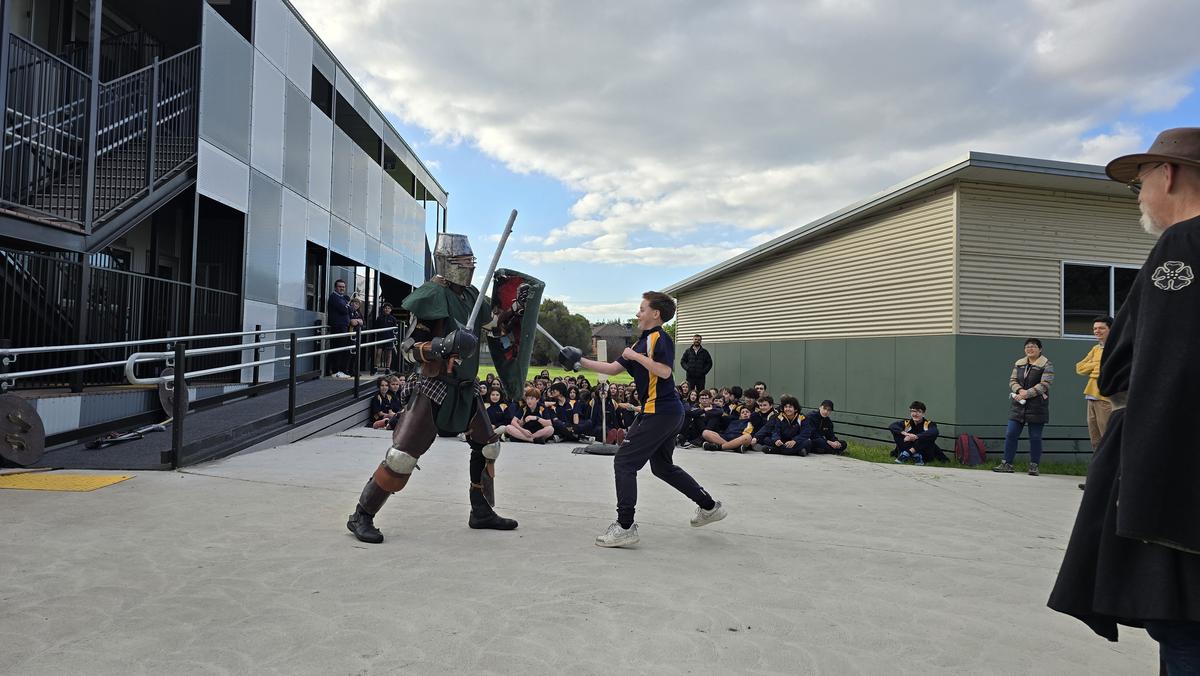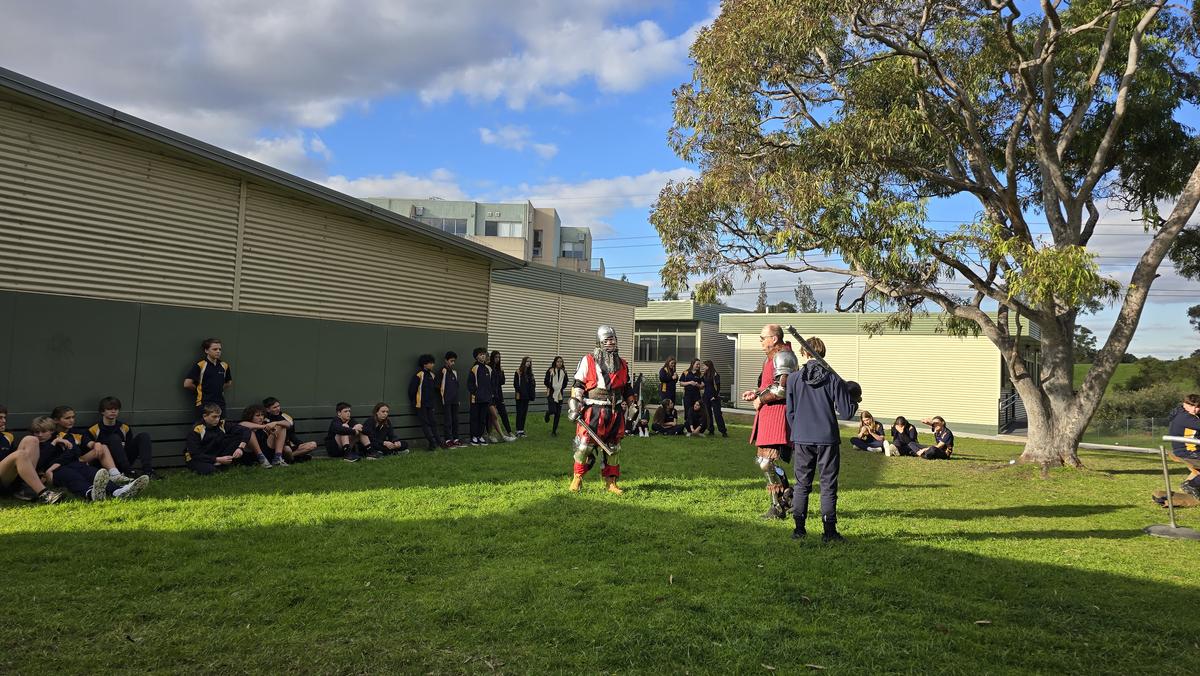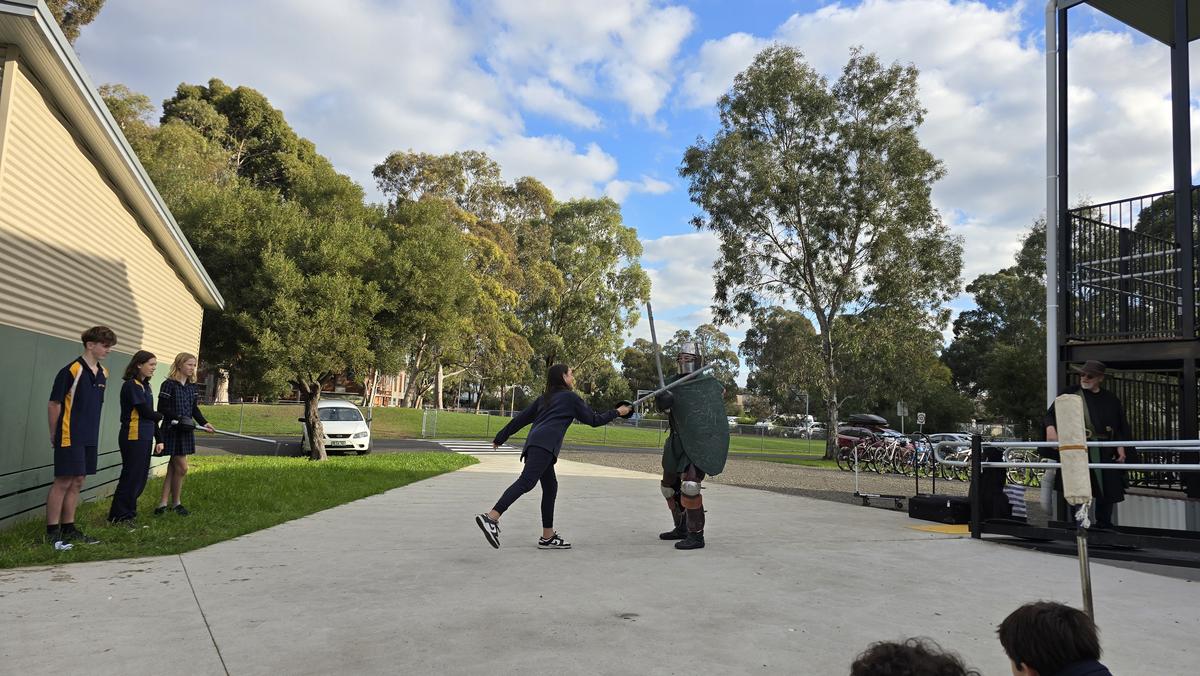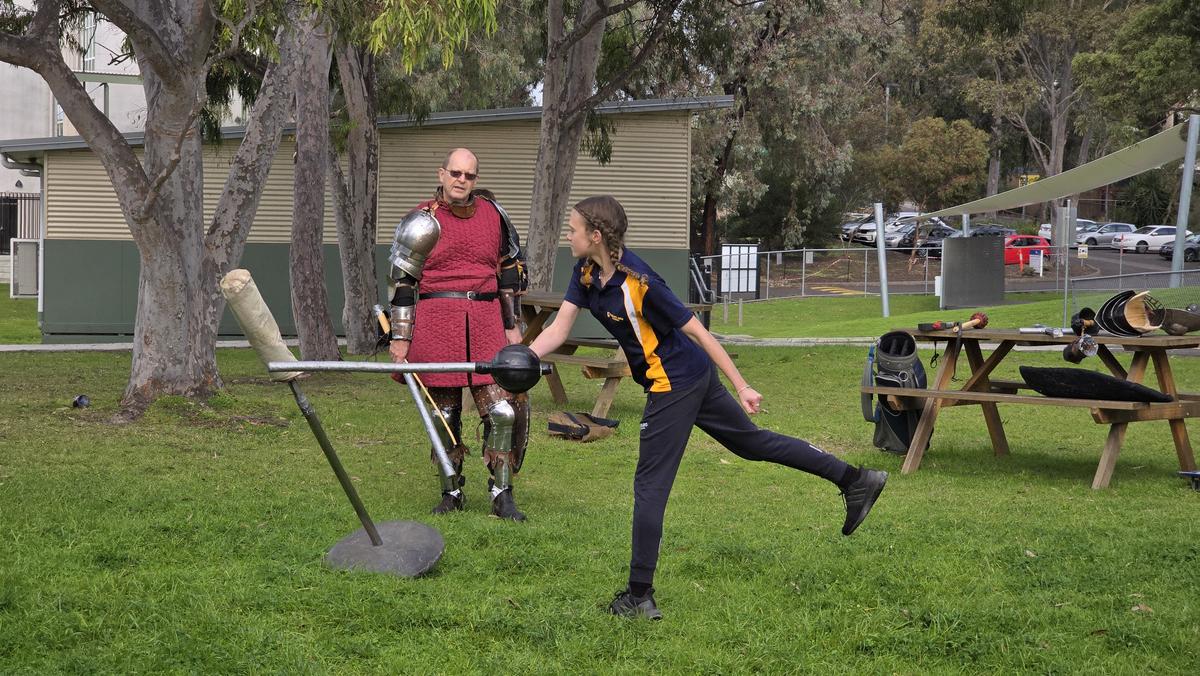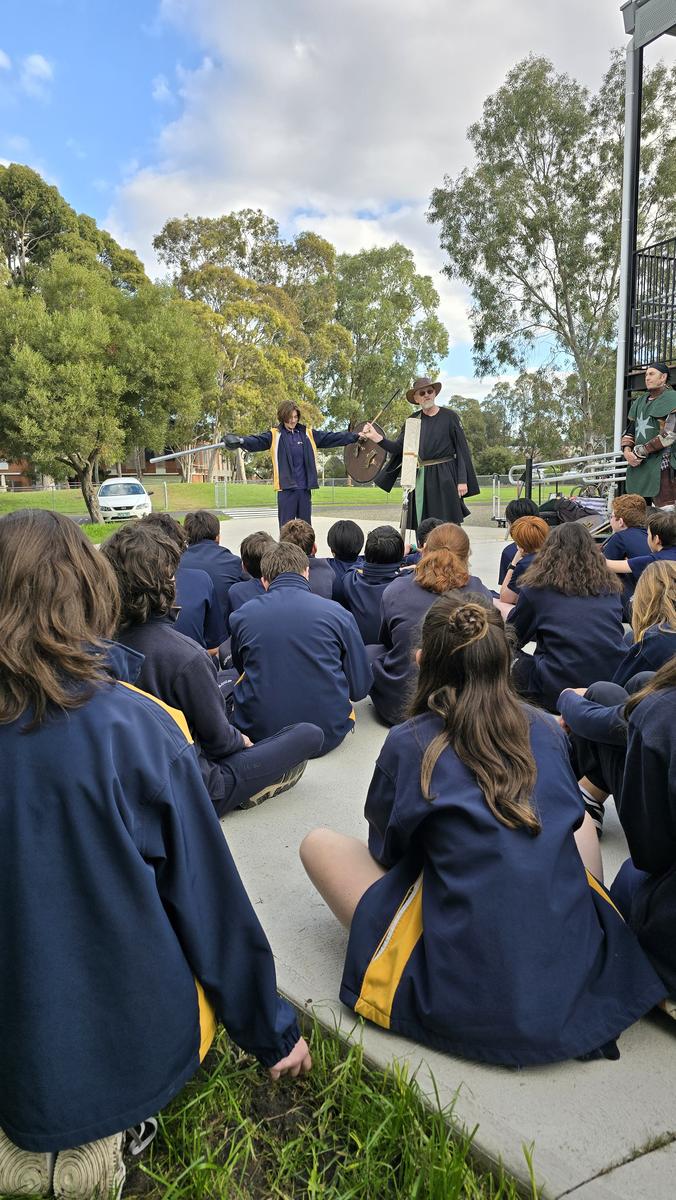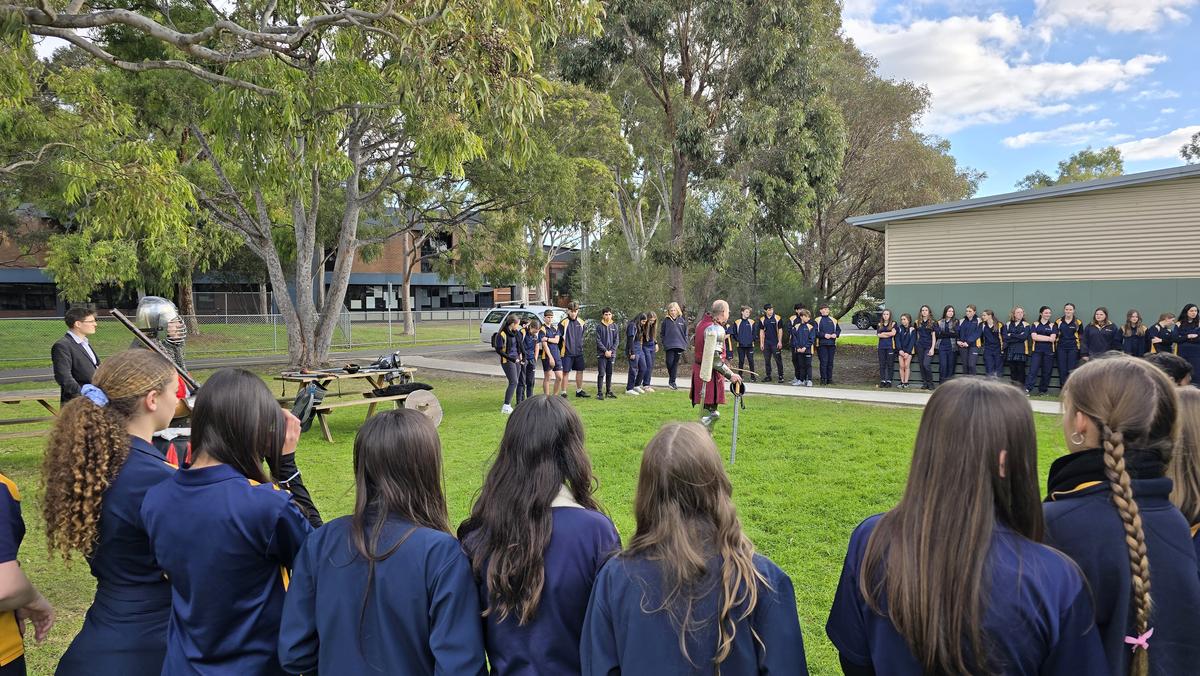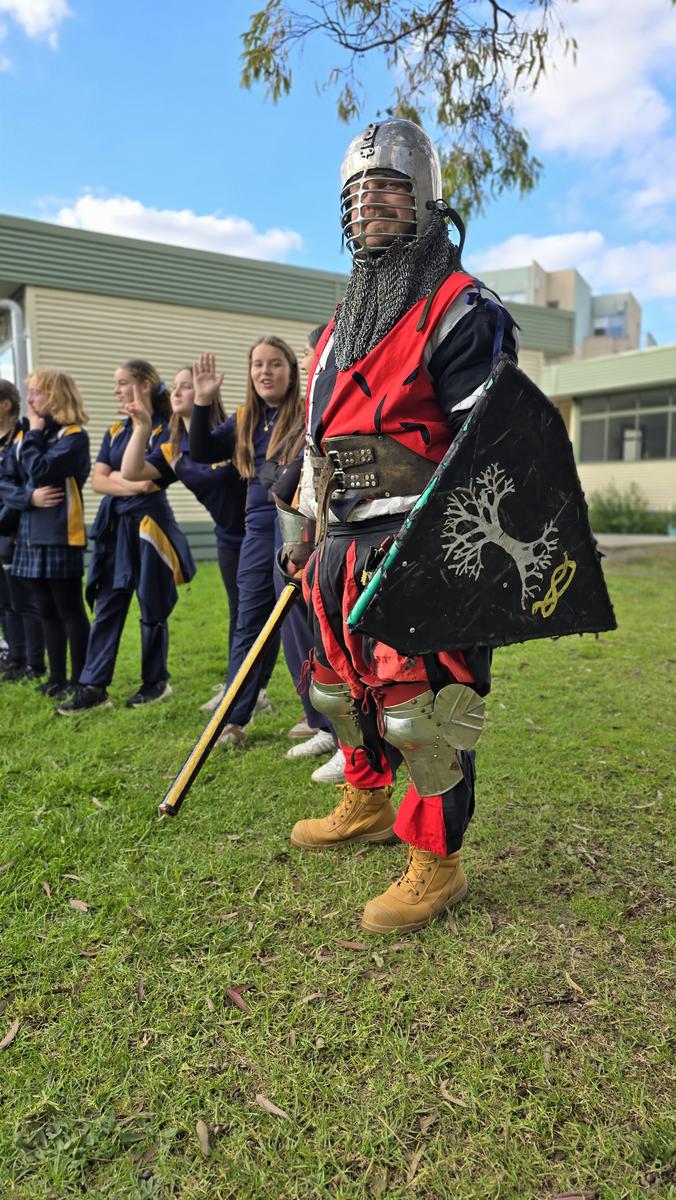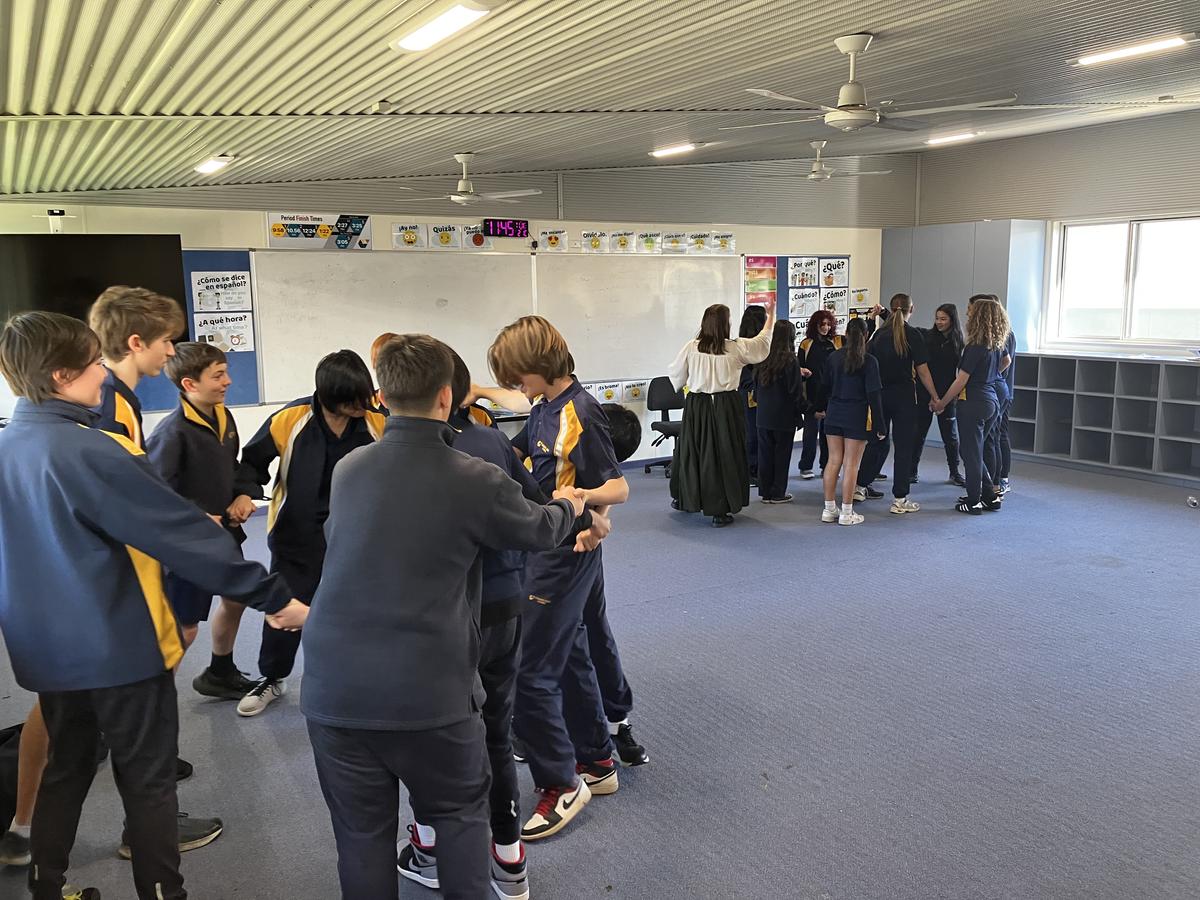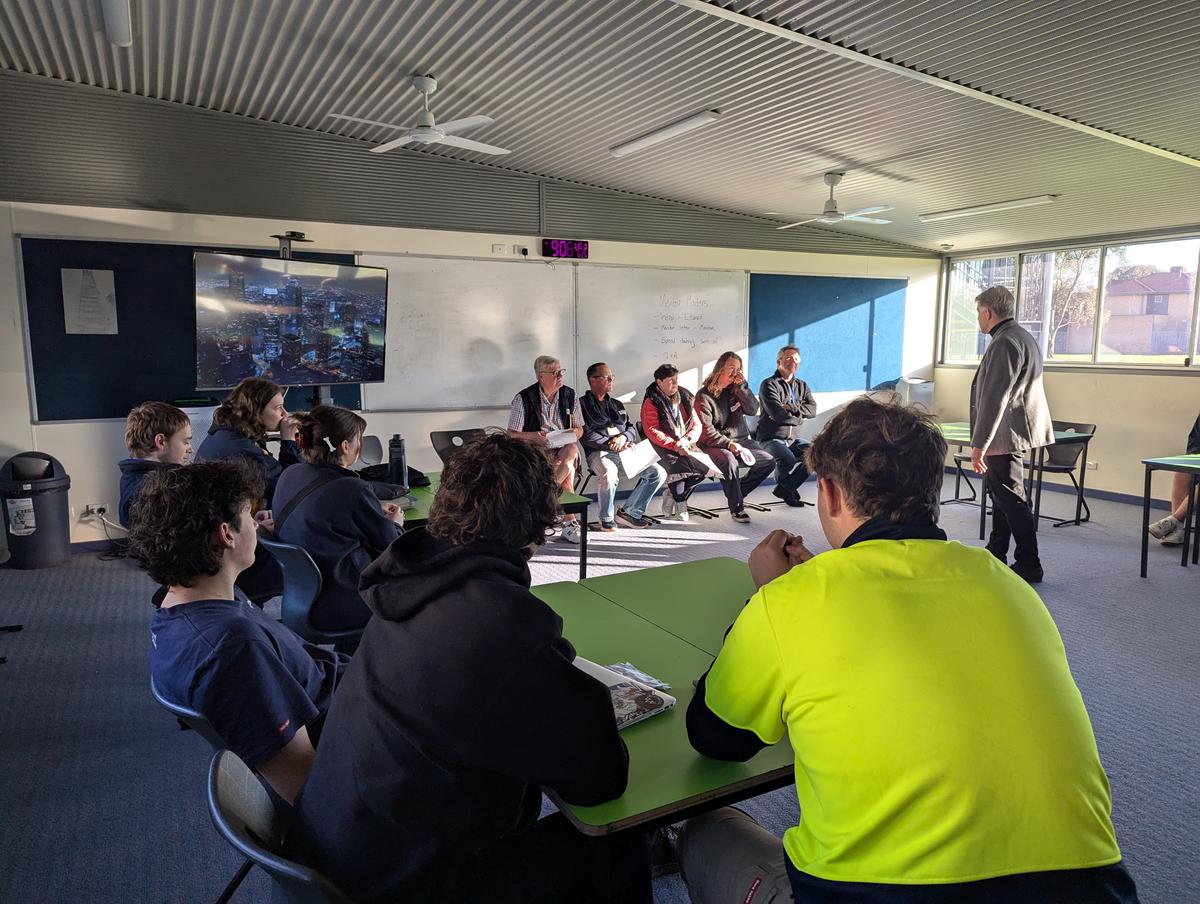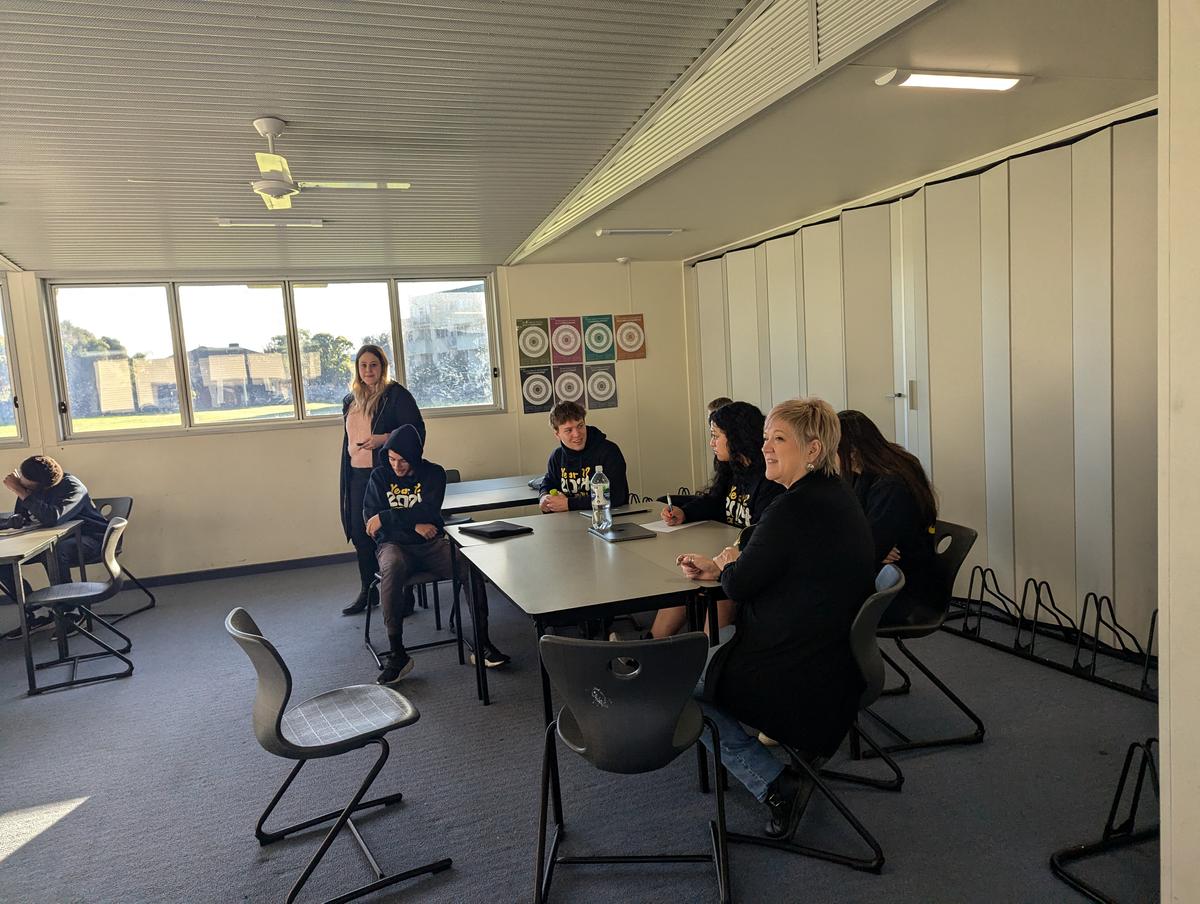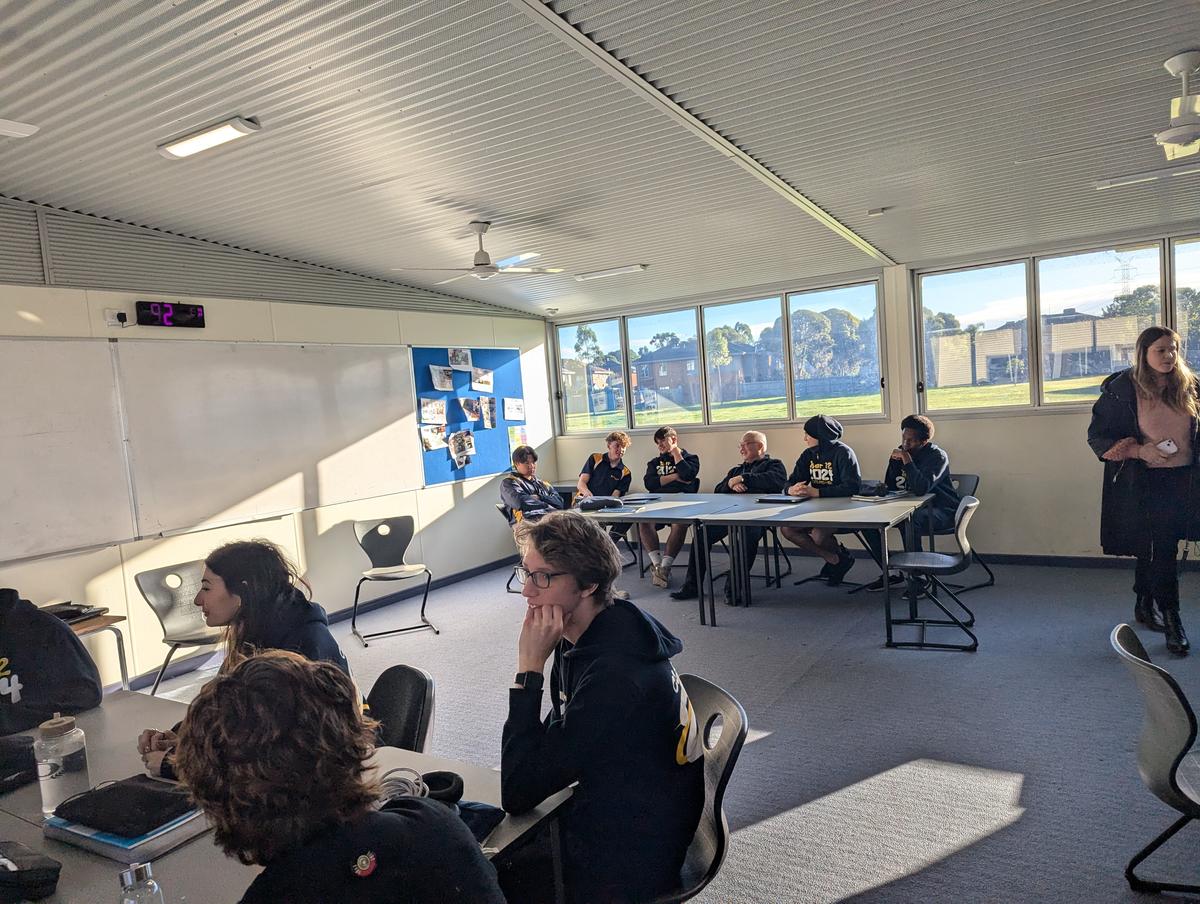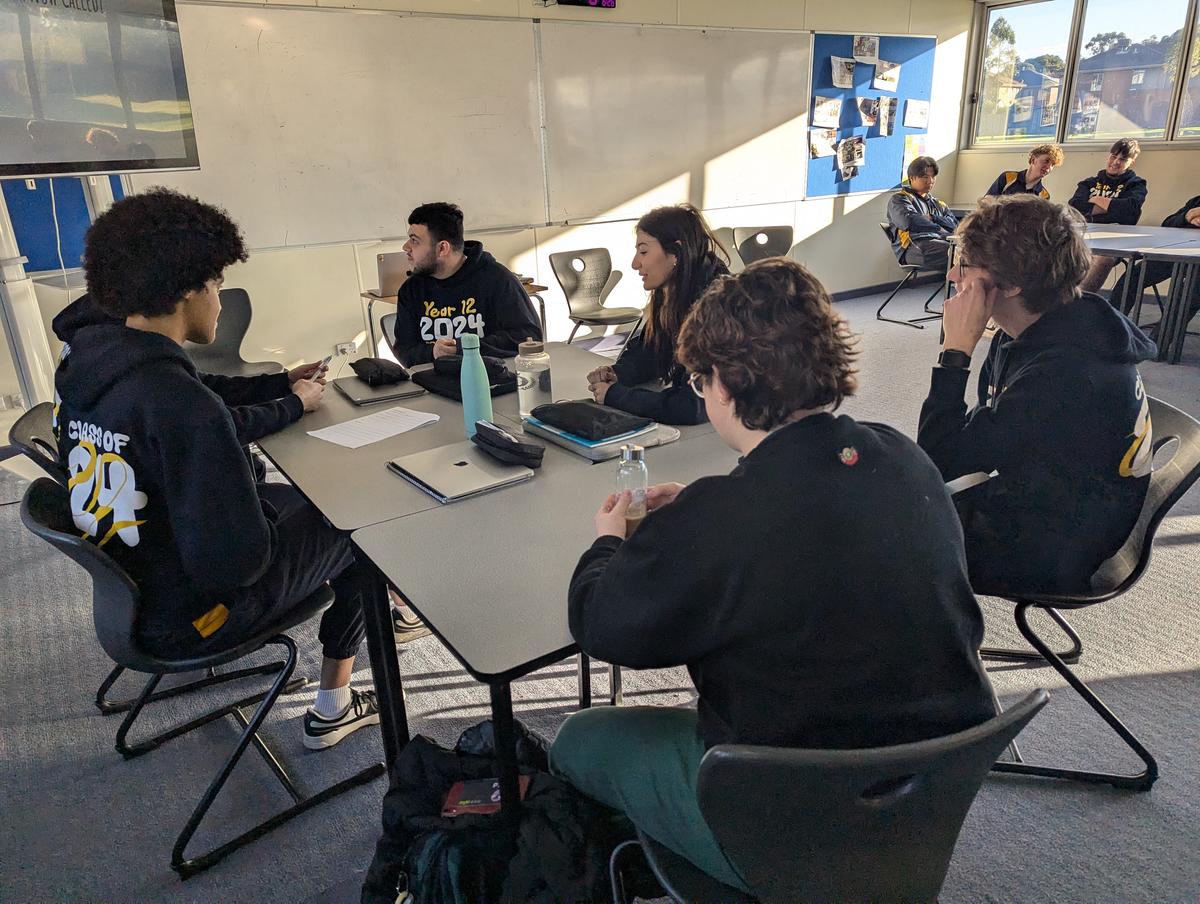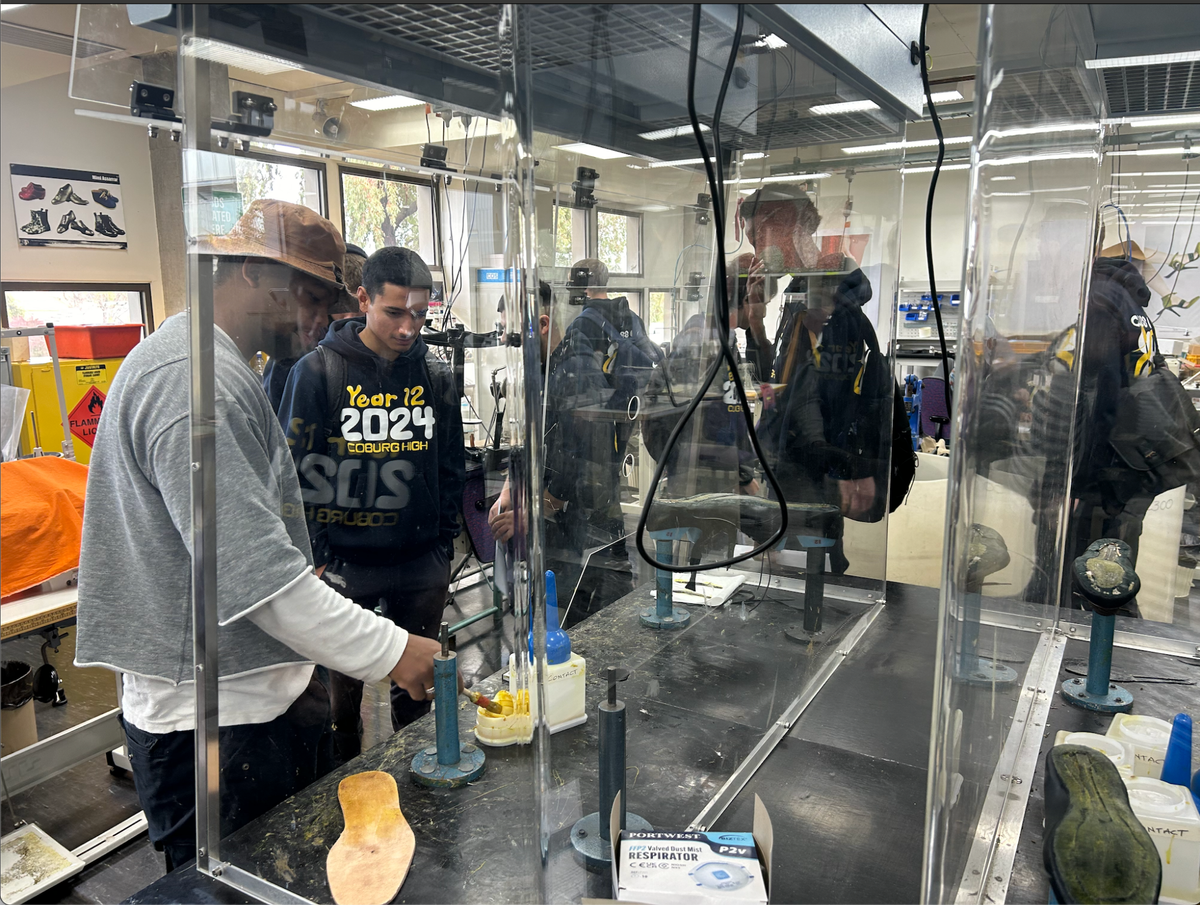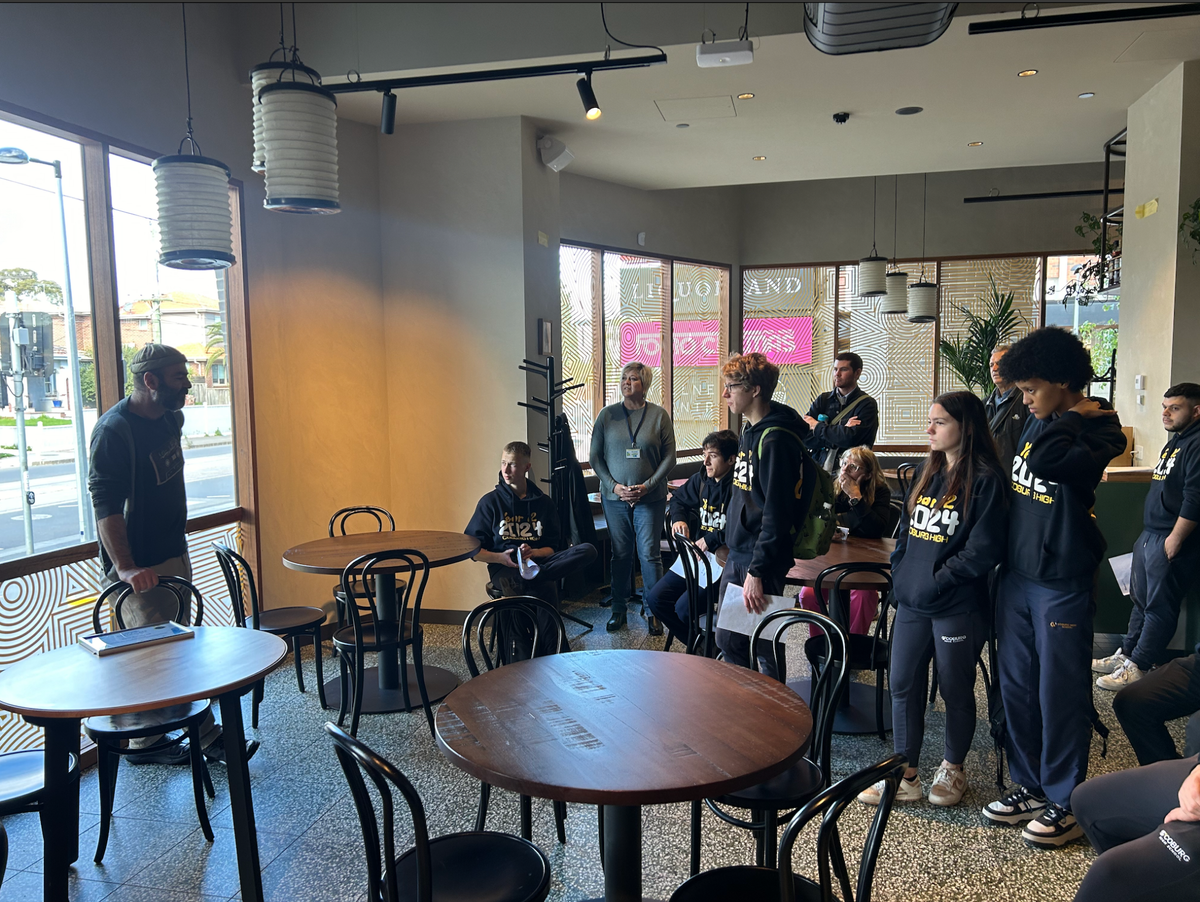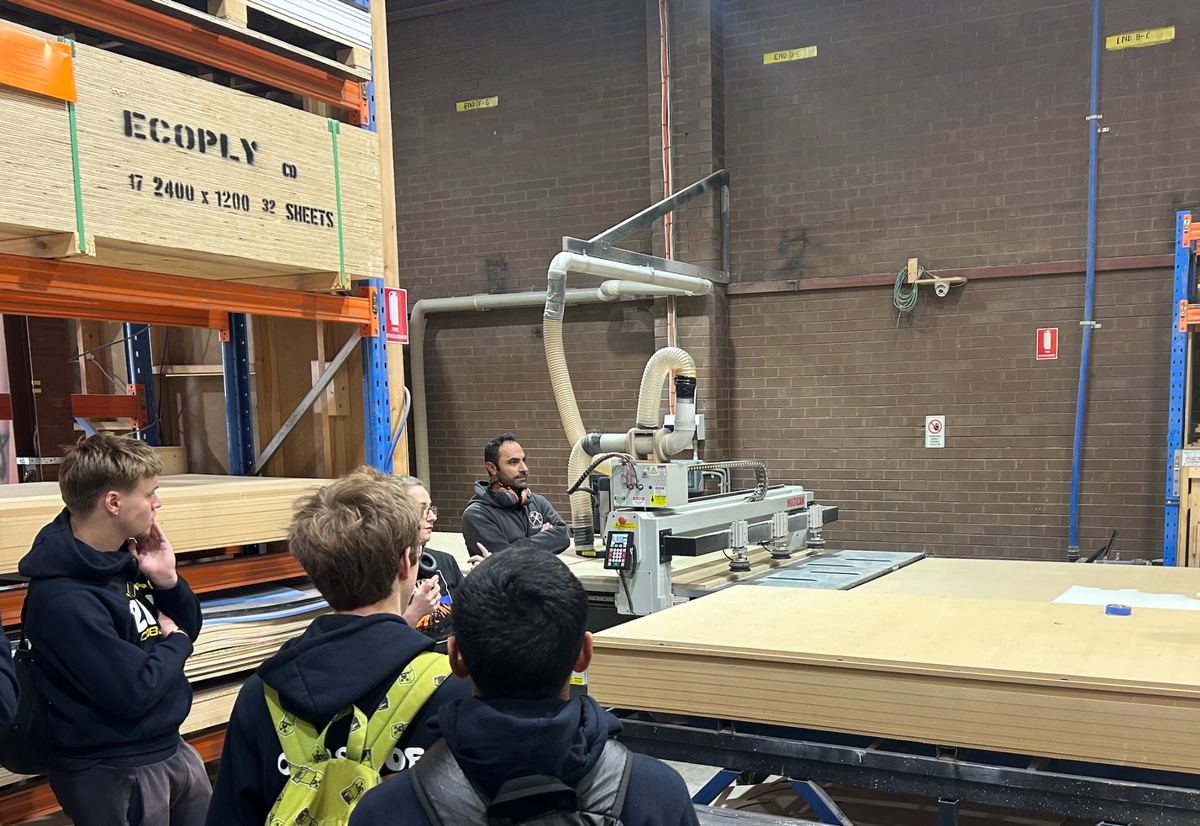Teaching & Learning
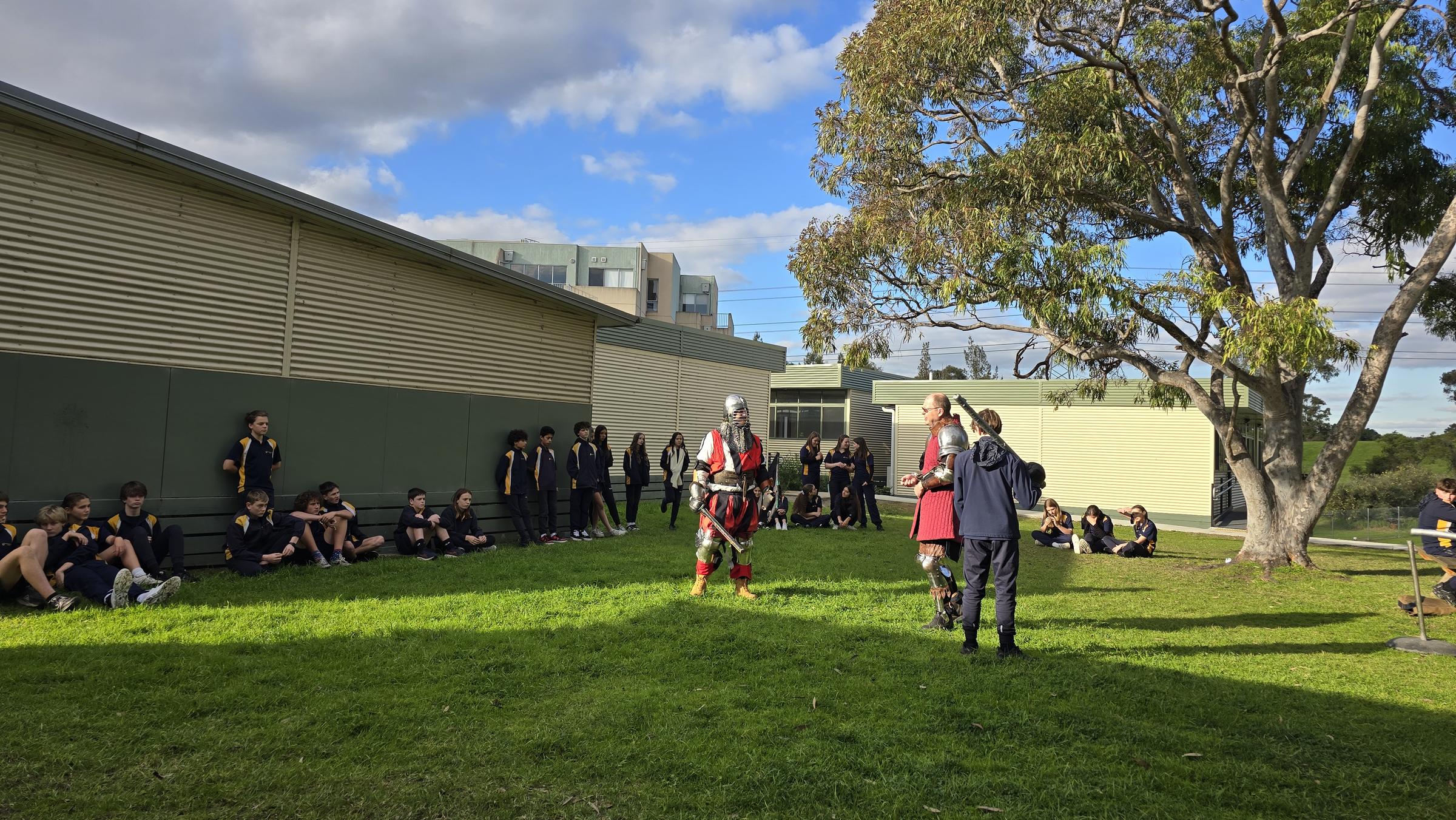
Year 12 Food
Recently Year 12 Food Studies classes did their "Personal Identity Prac" where they chose a meal representing their individual identity and presented it to the class.
Digital Technologies
Year 7
Our Year 7 Digital Technologies students have been hard at work this term, diving headfirst into the world of robotics. They've built a range of impressive robotic solutions, showcasing not only their coding and engineering skills but also their problem-solving abilities and persistence.
Each student started with the basics, assembling their robots and making them drive with simple programming sequences. As their skills progressed, they programmed their robots to respond to various sensor inputs, including gyro, ultrasonic, and light sensors, to complete accurate turns and follow lines. This wasn't just about following instructions—it was about understanding how each sensor works and applying that knowledge.
Students encountered numerous challenges, such as optimising the code and sensor placement for line following or recognising the challenge of using the gyro sensor to complete accurate turns. It's one thing to write code, but it's another to troubleshoot and refine it until the robot performs reliably.
This process of trial and error, testing, and tweaking is where true learning happens. Most students demonstrated remarkable persistence, a vital skill that extends far beyond the classroom. They learned that setbacks are not failures but opportunities to improve and innovate.
In today's rapidly changing world, the ability to solve problems and persist through challenges is more important than ever. We're proud of our Year 7 students for their hard work and dedication, and we can't wait to see what they achieve next.
Year 10
This semester, our Year 10 Digital Technologies students delved into the basics of Arduino microcontrollers. They learned to control a range of sensors and outputs including servos, LEDs, and ultrasonic sensors. They also checked they could identify and correct various syntax and logic errors in their code.
As their understanding grew, students were tasked with developing solutions to self-identified problems using microcontrollers. Projects included automatic door locking systems, automated basketball scoring systems using sensors, and the always popular buzz wire game.
The students displayed great problem-solving abilities and persistence throughout the term. They worked through challenges, refining their projects into functioning prototypes.
Shane Nash
Medieval Day
Year 8 Medieval Day is a fun and interactive link to our Humanities studies on Medieval Europe and the Ancient World. Students completed a combination of several different sessions including Weapons & Armour, Medieval Dance, Tournaments, Crime & Punishment, and Heraldry.
Amanda Hann
Year 12 VM
Mentoring Matters
Over the past 10 weeks year 12 VCE VM students have been meeting with a range of different mentors from various industries. These mentors have all volunteered their time to instil their wisdom and experience. Offering advice and even some job recommendations to the students. Halfway through the term students attended an industry excursion alongside their mentors. While the year 12s were having their end of unit celebrations, the year 11 VCE VM cohort started their first session with another 9 to follow next semester.
Amazing Race 24/5
On May 24th, the Year 12 VCE VM class went on an excursion to the city. They were broken up into five teams and they would go on a journey to find clues between Federation Square and the East End of the city. Before the event, they spent class time creating clues and a clue sheet for one other team; these clues were swapped on the day to another team, and they had to figure out the fastest way to win the Amazing Race.
Industry Excursion - 14/5
The Year 12 VCE/VM class participated in an excursion visiting three businesses in Brunswick, each providing insights into various industries.
Their first destination was RMIT Brunswick. Here, the students explored courses relating to the fashion and design industry. They were introduced to the processes involved in fashion design, shoemaking, and textile creation.
Following this, they visited Onset Arts, an artistic workshop involved in prop creation. The students were given an exclusive look into the processes involved in crafting props for a wide range of applications, from television shows to mini-golf courses.
Their final stop was Rumi, a Middle Eastern restaurant. The visit provided a perspective into the restaurant industry, and the multiple skills and staff needed to successfully run a restaurant. This included speaking to chefs, front of house manager, beverage manager, touring the kitchen and understanding the marketing and events portion of the business.
This excursion offered a multifaceted view of diverse industries, furthering the students' understanding of different sectors and diverse career opportunities.
Lydia Burns

